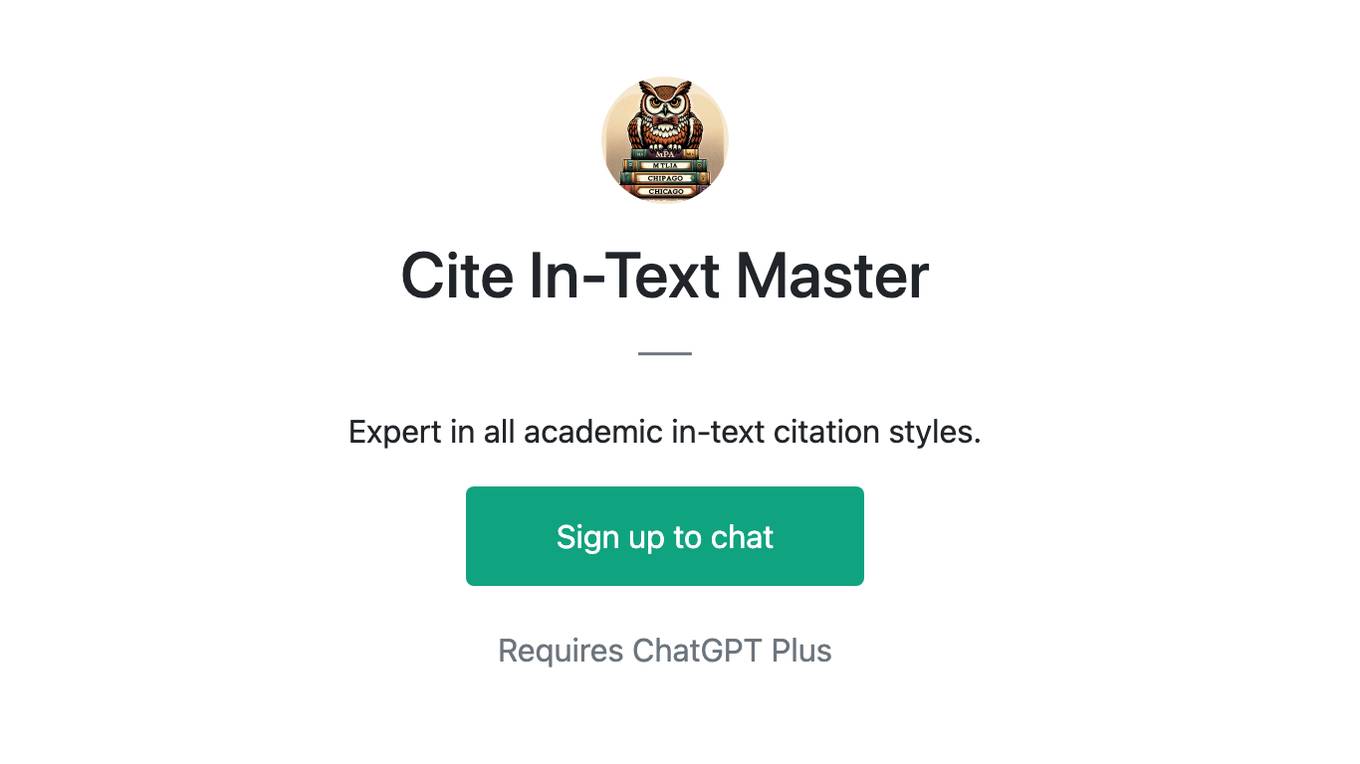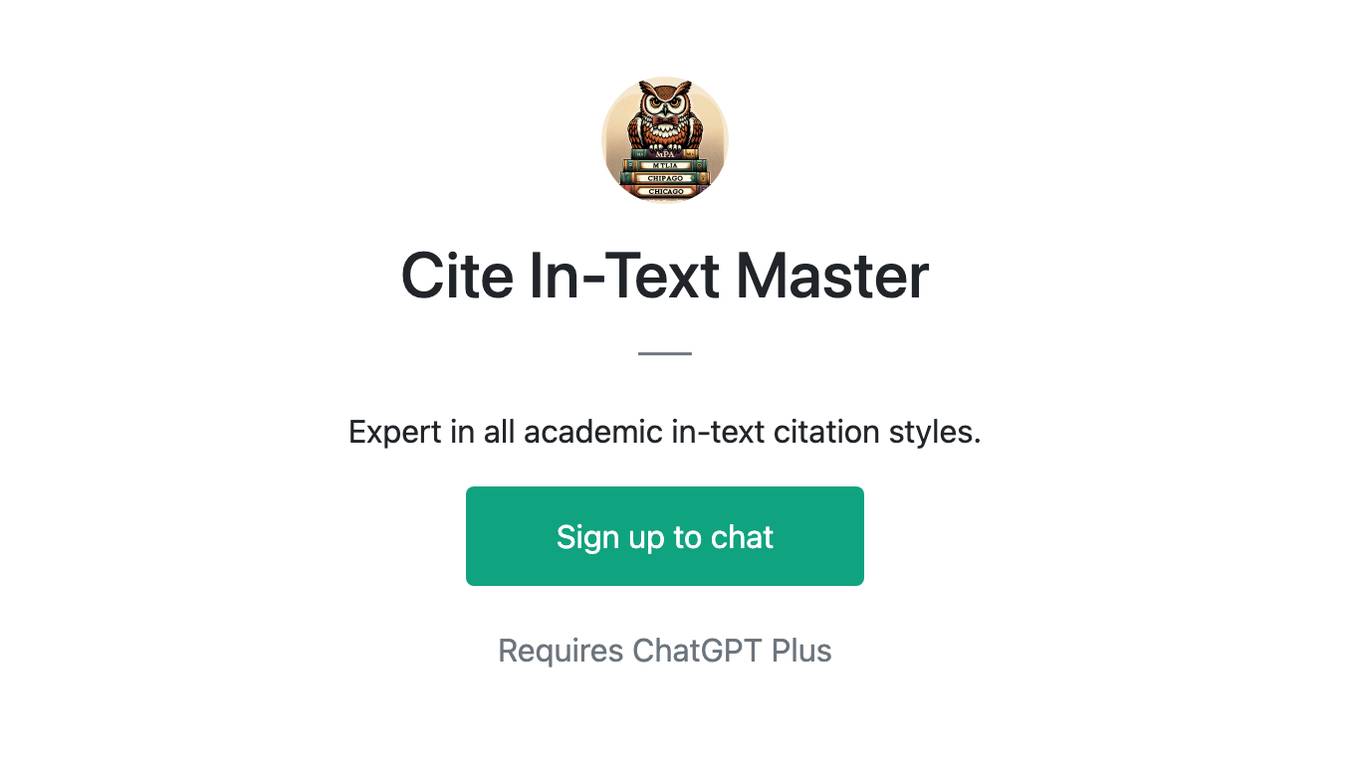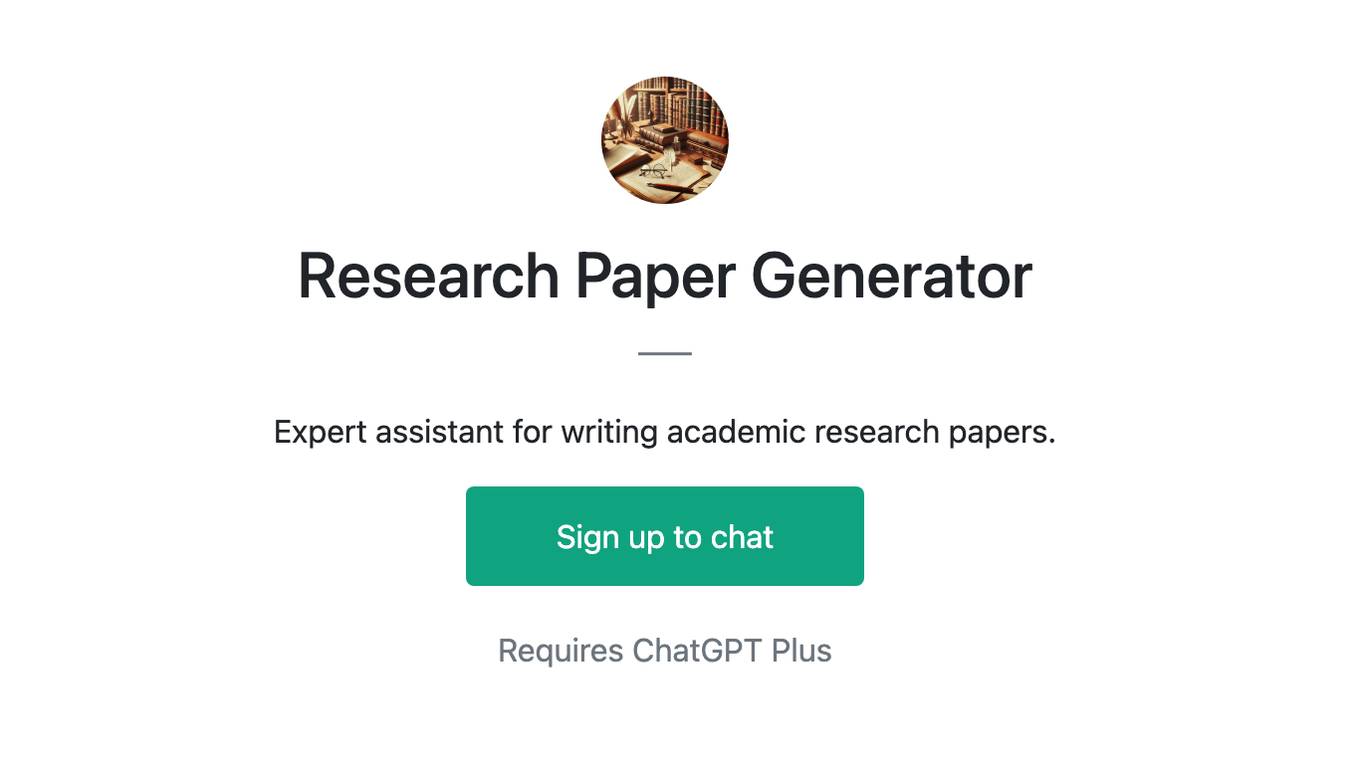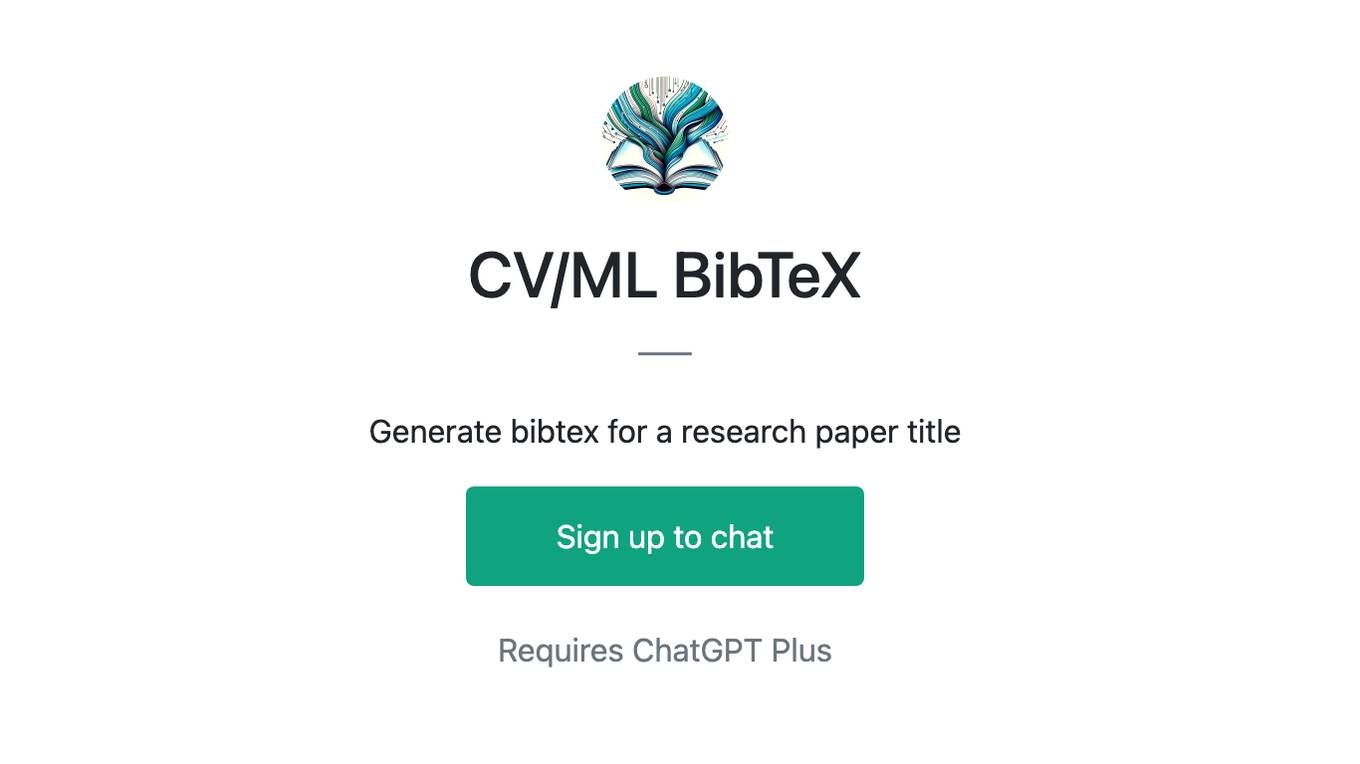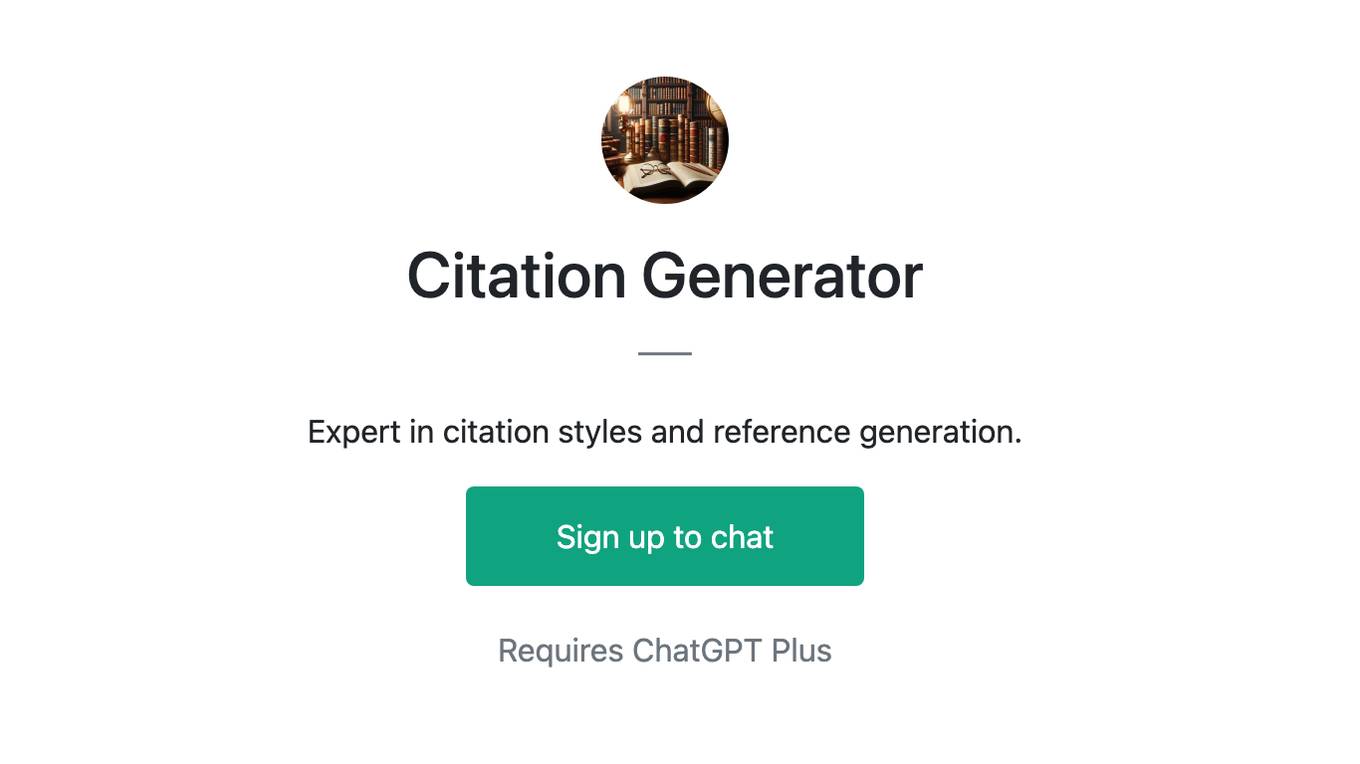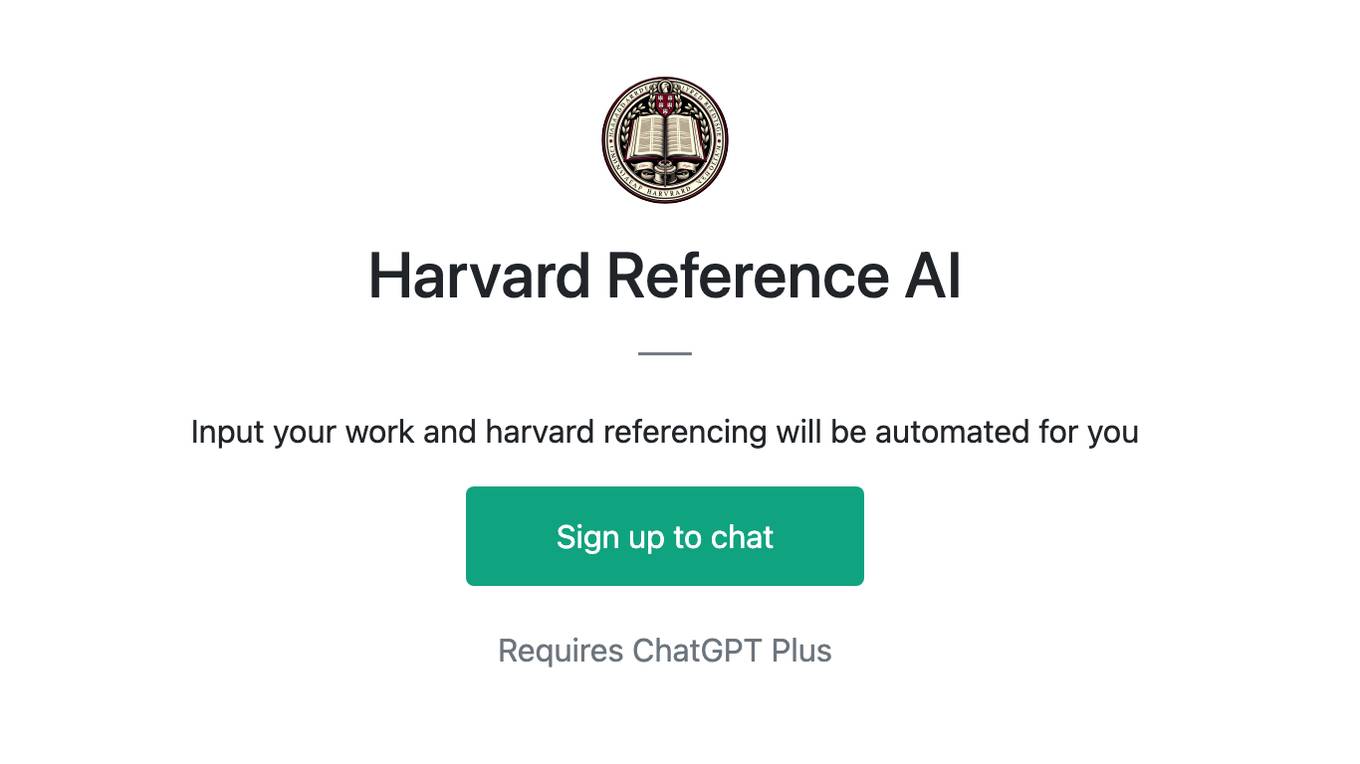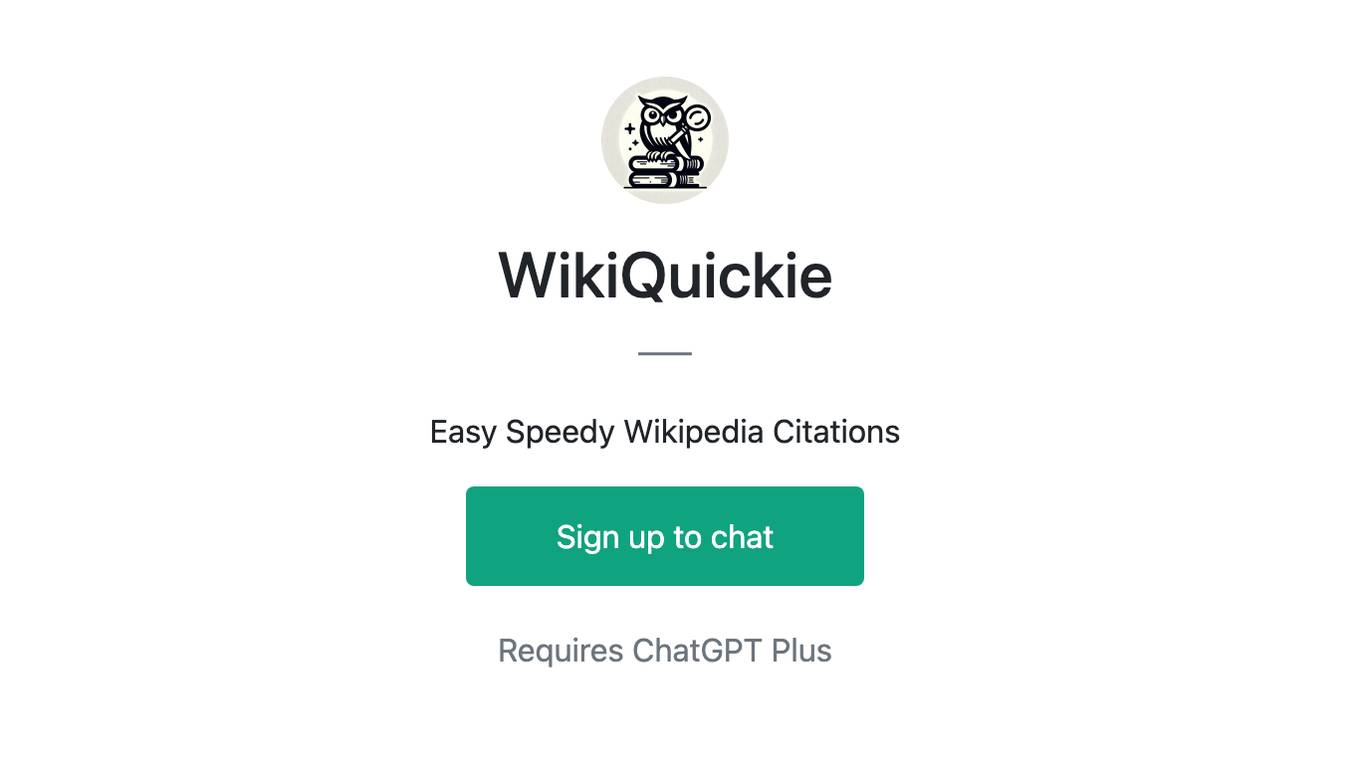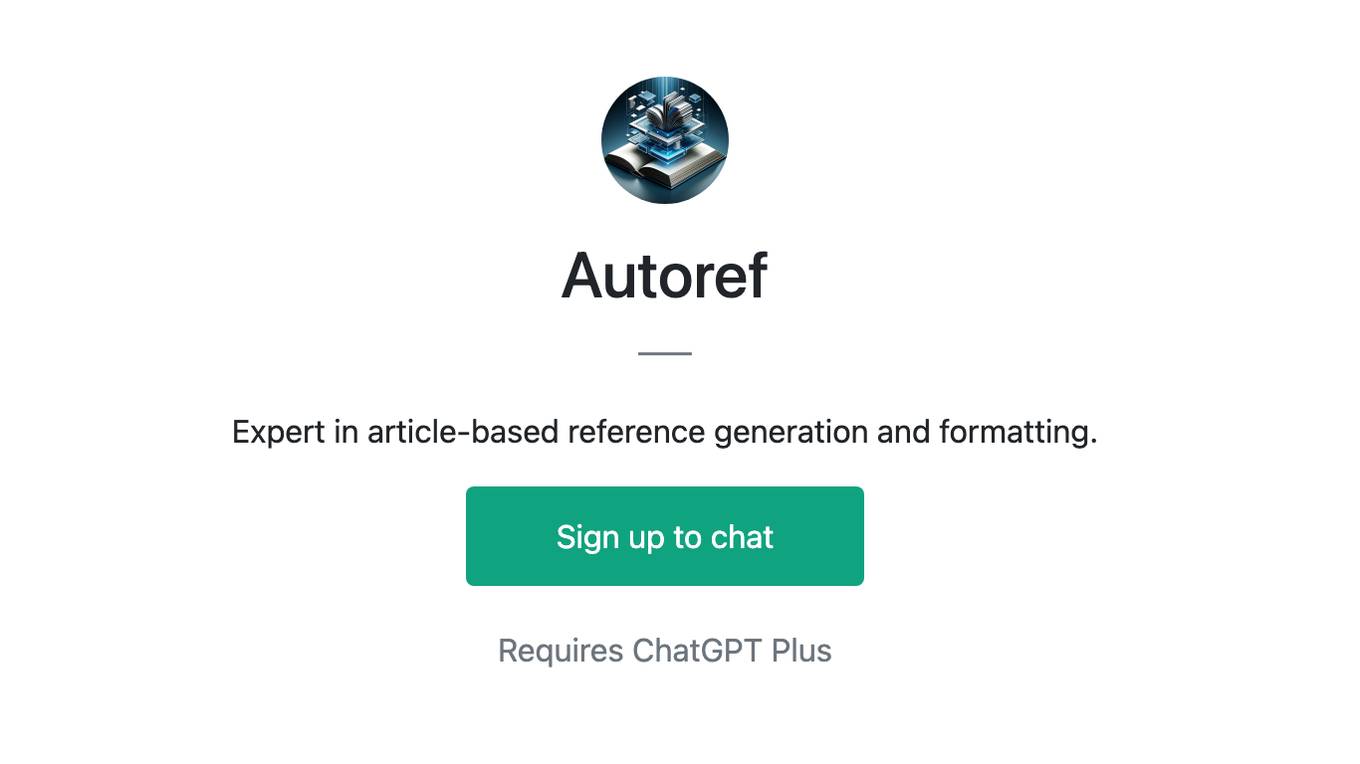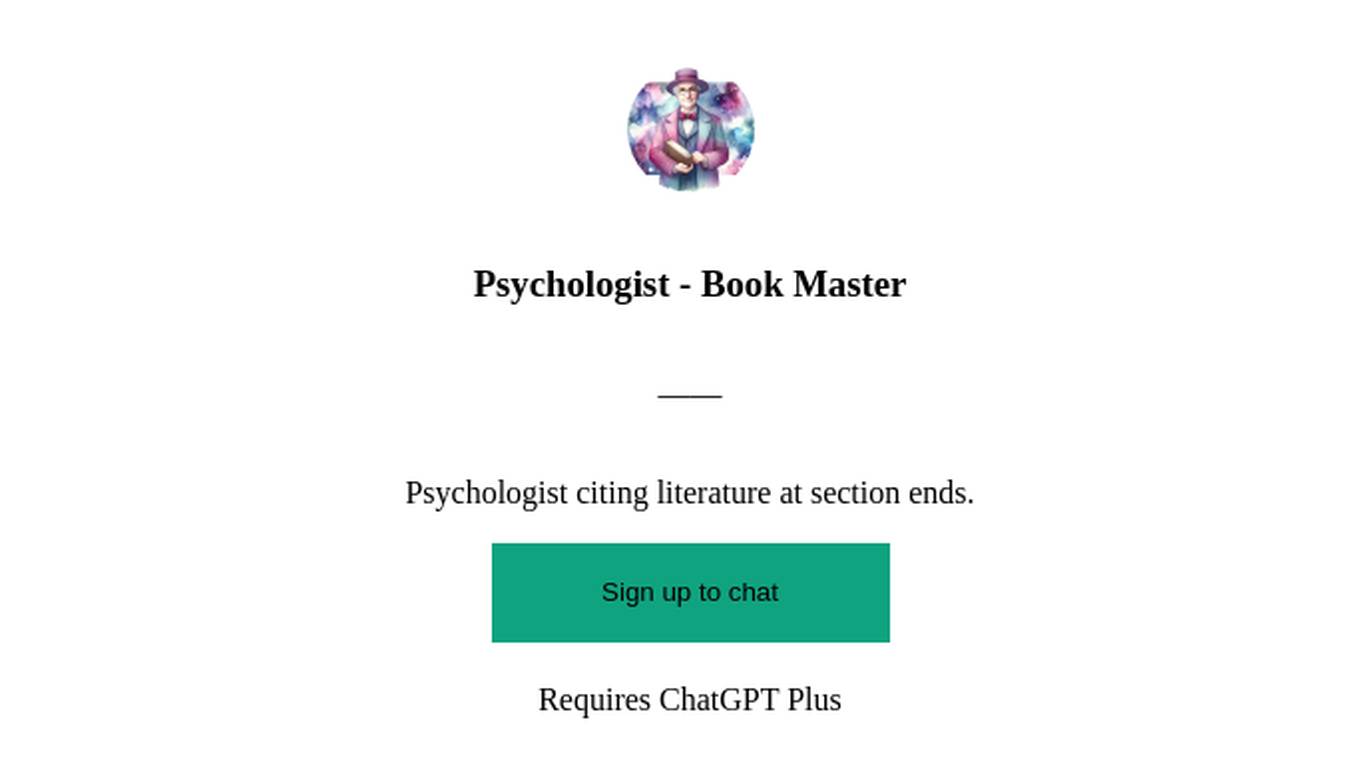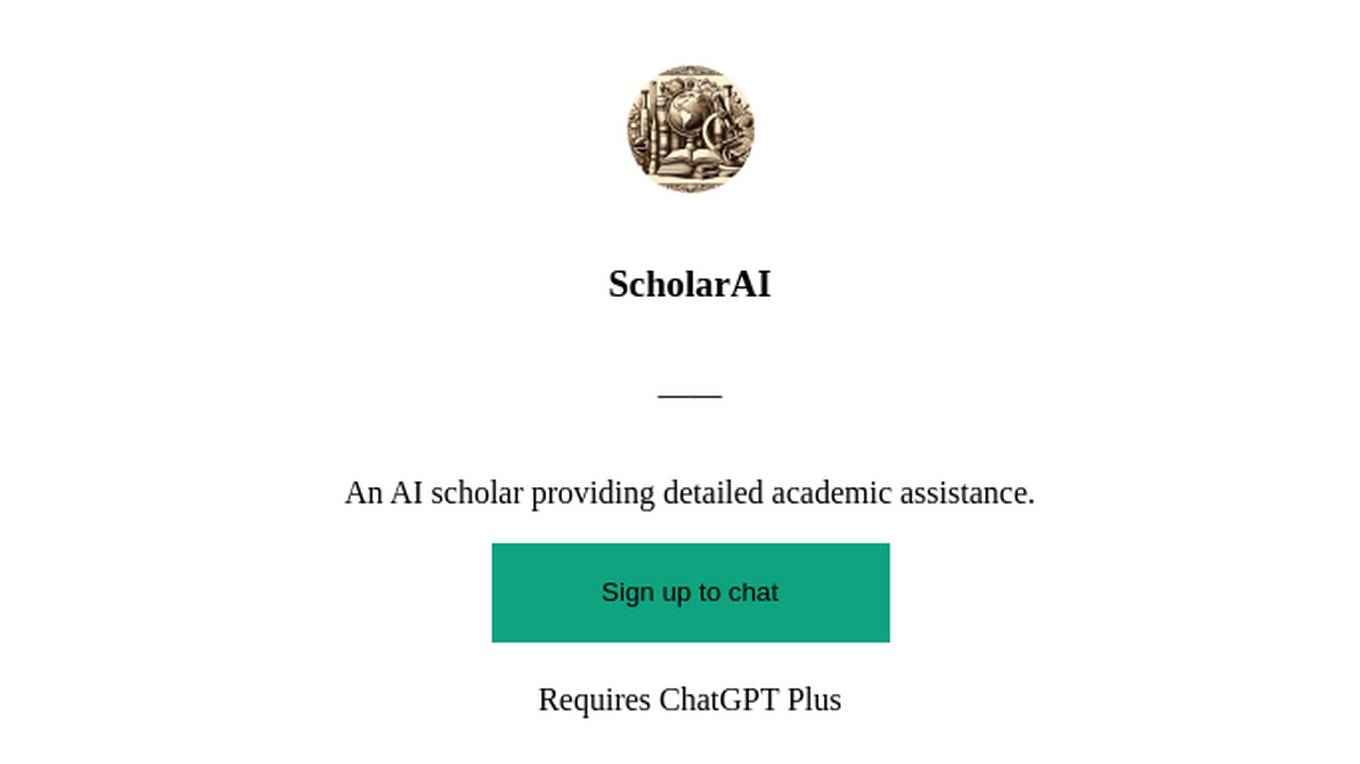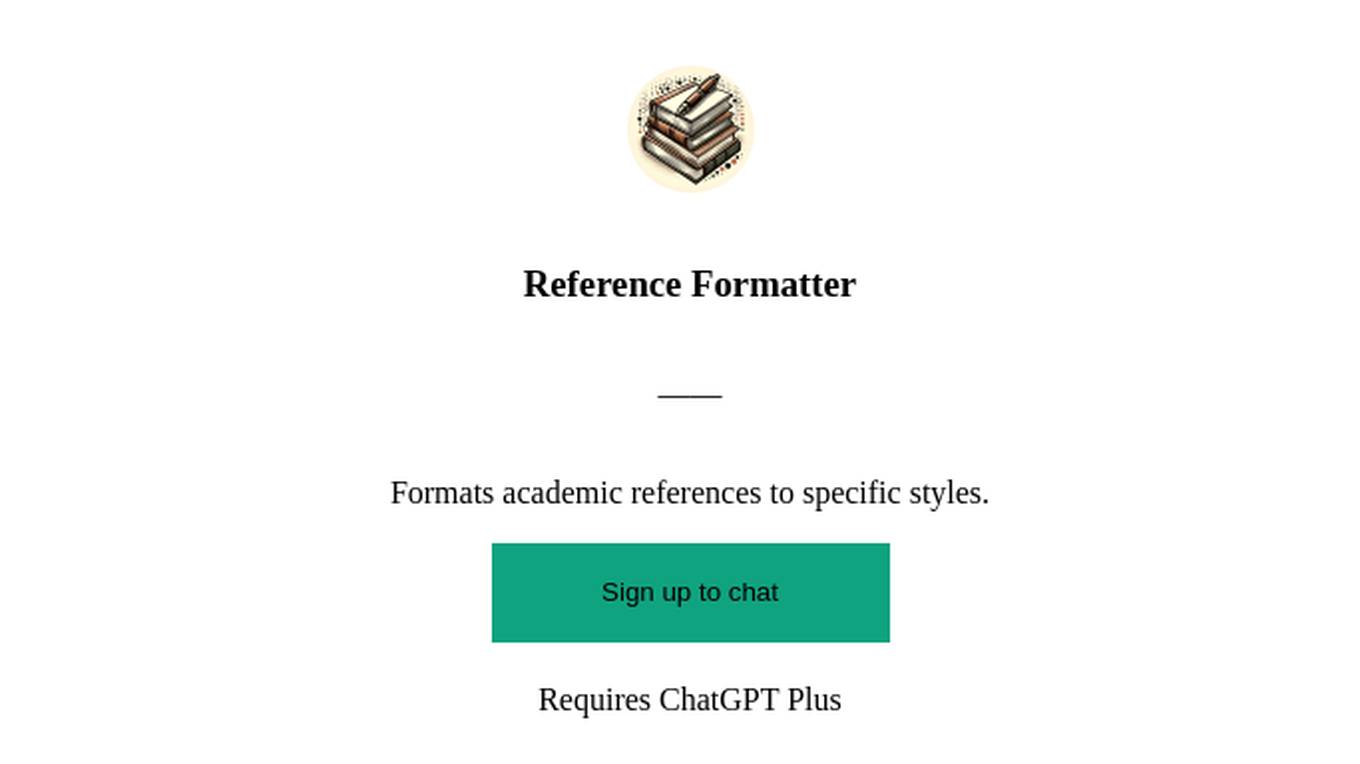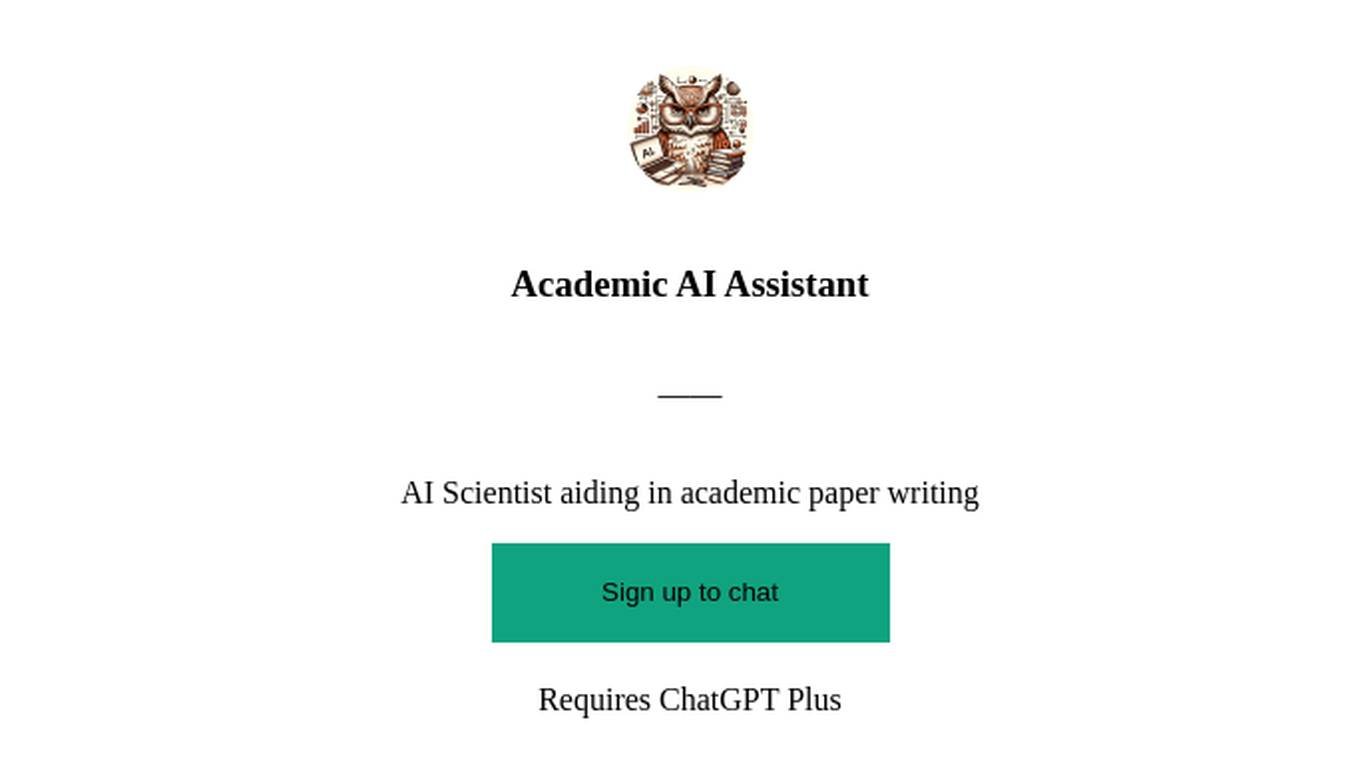Best AI tools for< Cite Research >
19 - AI tool Sites
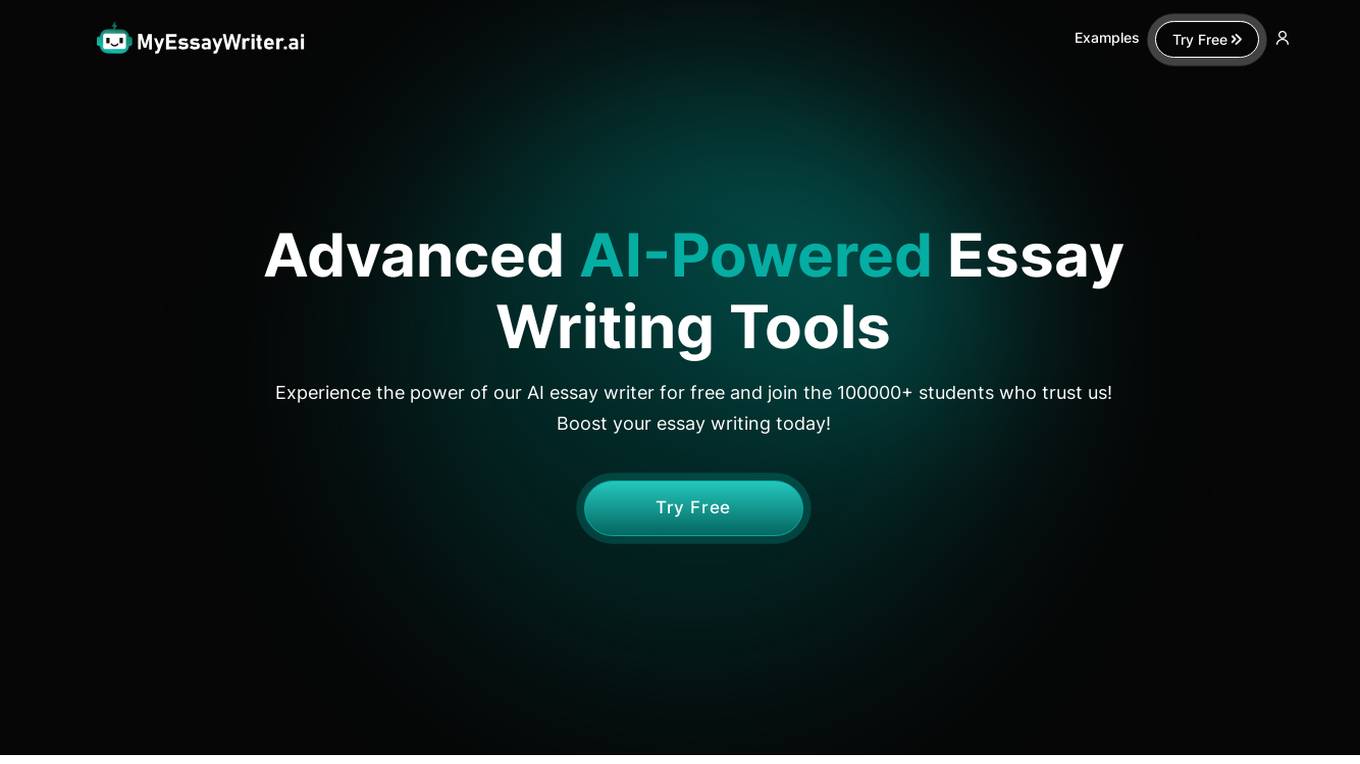
MyEssayWriter.ai
MyEssayWriter.ai is an AI-powered essay writing tool that offers advanced features to help students generate high-quality essays efficiently. The tool is designed to save time, improve writing skills, and provide unique and plagiarism-free content. With a user-friendly interface and customizable essays, MyEssayWriter.ai aims to revolutionize the writing process for students worldwide.
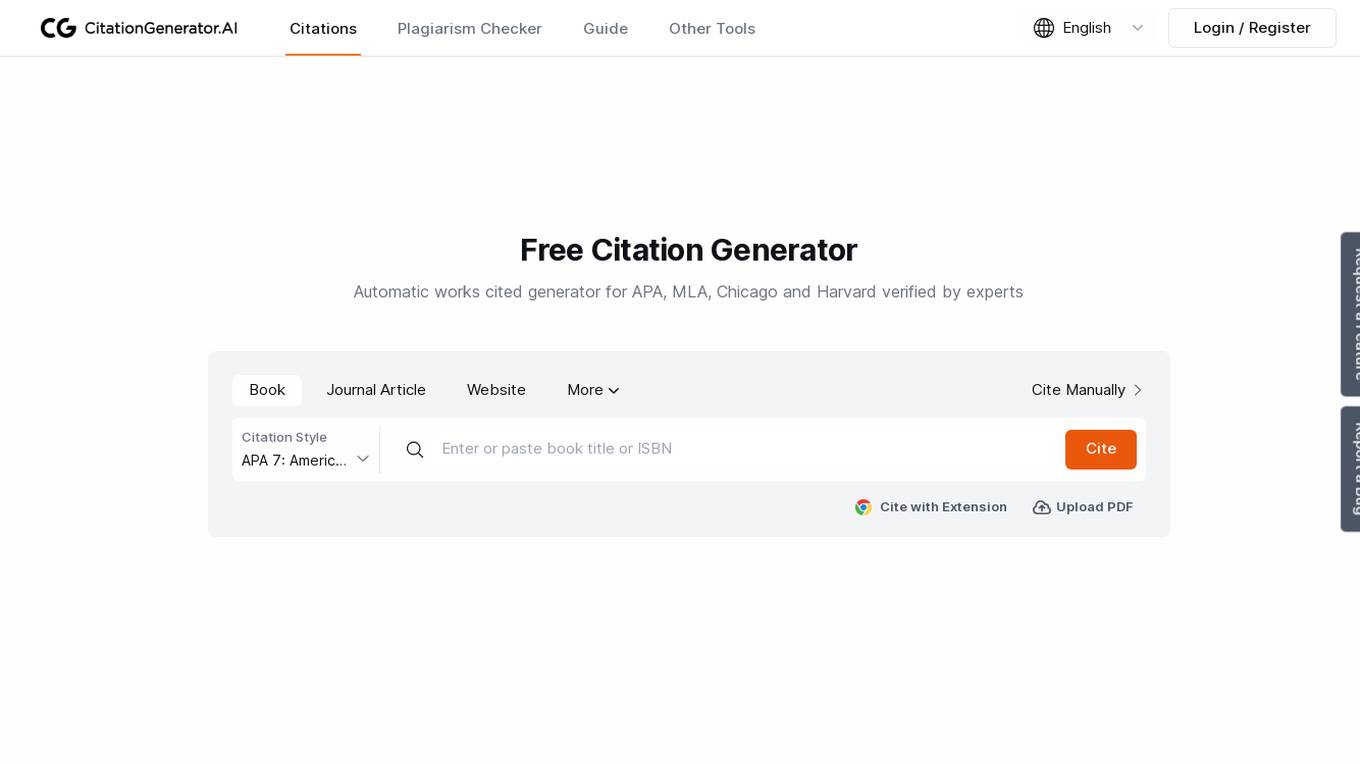
CitationGenerator.AI
CitationGenerator.AI is an AI-powered citation generator that helps users create accurate citations in APA, MLA, Chicago, and Harvard formats. The tool automatically extracts information from URLs, titles, ISBNs, or DOIs to generate precise citations. It offers a clean interface, supports multiple citation styles, and allows users to manage their research efficiently with features like import/export capabilities and custom fonts. CitationGenerator.AI prioritizes user privacy by encrypting data and offers free access without any hidden costs or ads. The tool is designed to enhance research integrity and ease by providing a user-friendly experience.
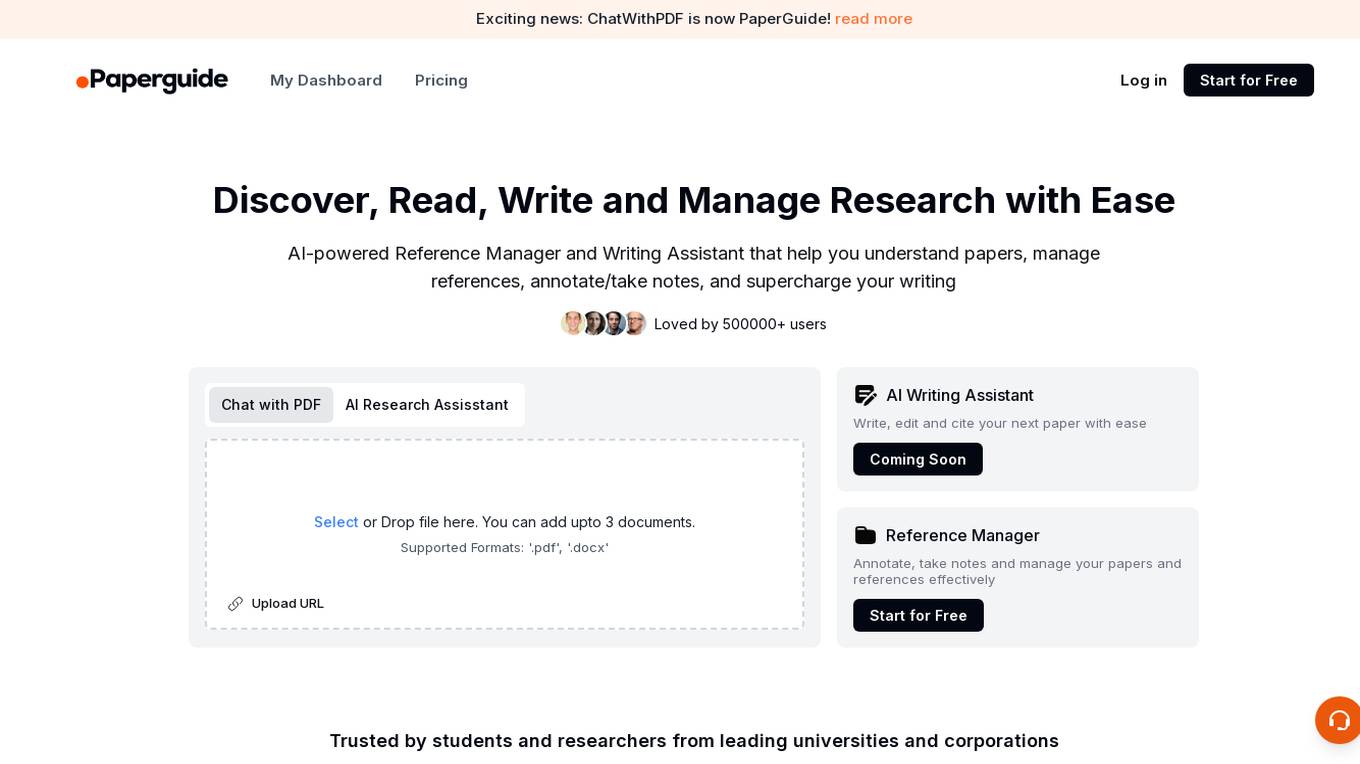
Paperguide
Paperguide is an AI Research Platform that offers an all-in-one solution for researchers and students to discover, read, write, manage research papers with ease. It provides AI-powered Reference Manager and Writing Assistant to help users understand papers, manage references, annotate/take notes, and supercharge their writing process. With features like AI Search, Instant Summaries, Effortless Annotations, and Flawless Citations, Paperguide aims to streamline the academic and research workflow for its users.
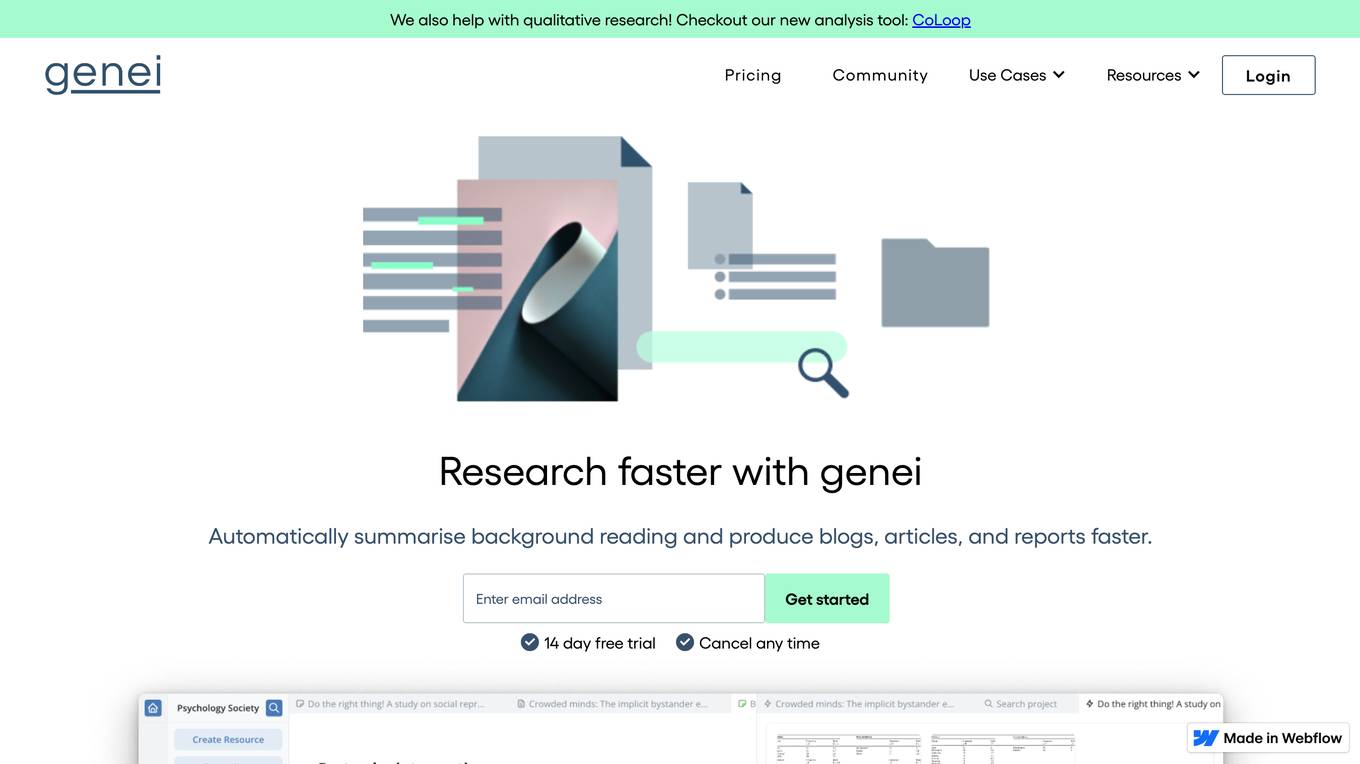
Genei
Genei is an AI-powered summarization and research tool that helps users with qualitative research, content production, academic writing, and professional writing. It enables users to research faster by automatically summarizing background reading and producing blogs, articles, and reports efficiently. Genei offers features such as summarization, keyword extraction, document management, annotation capabilities, and citation management. Trusted by thought leaders and experts, Genei enhances productivity, saves time, and improves the quality and efficiency of research and writing tasks.
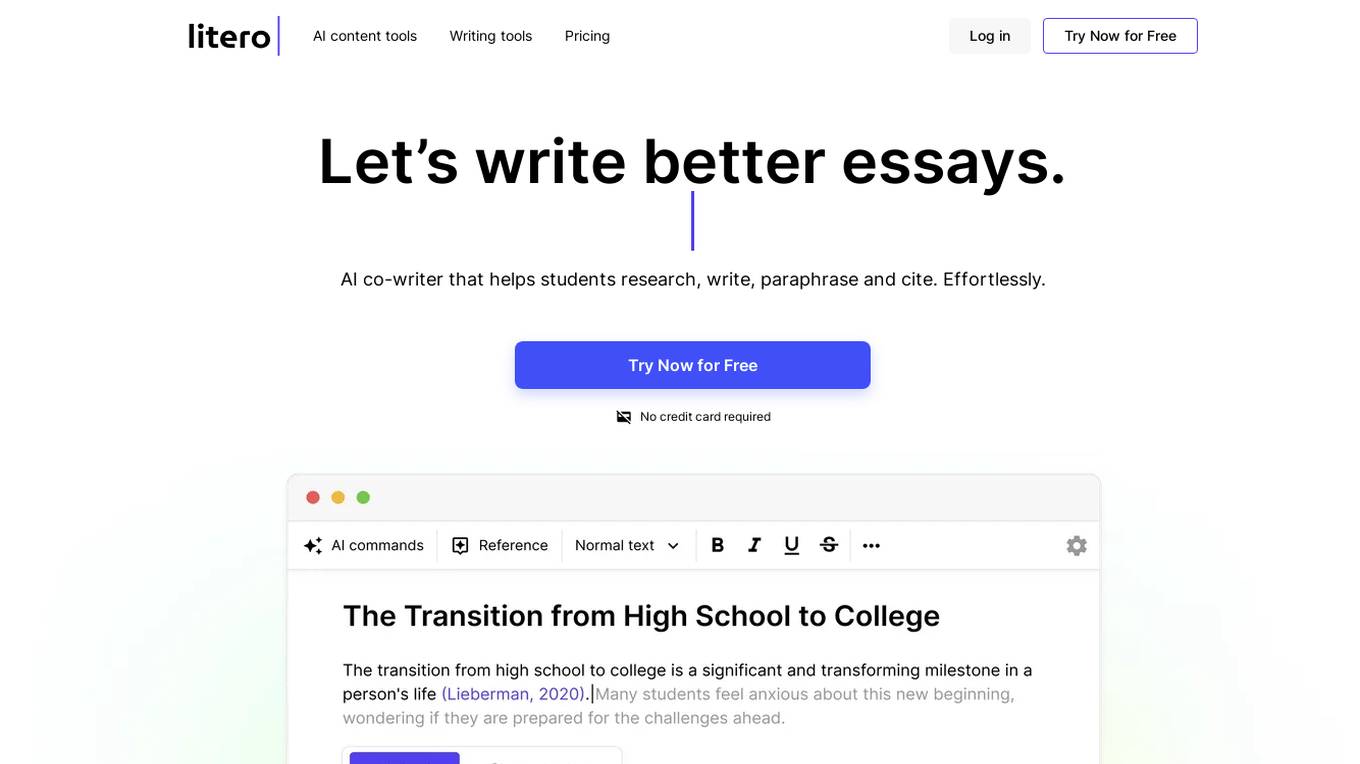
Litero
Litero is an AI-powered writing assistant designed specifically for students. It offers a range of tools to help students with their writing tasks, including an outline generator, AI autosuggest, citation tool, and built-in ChatGPT integration. Litero is easy to use and can help students save time and improve their writing skills.
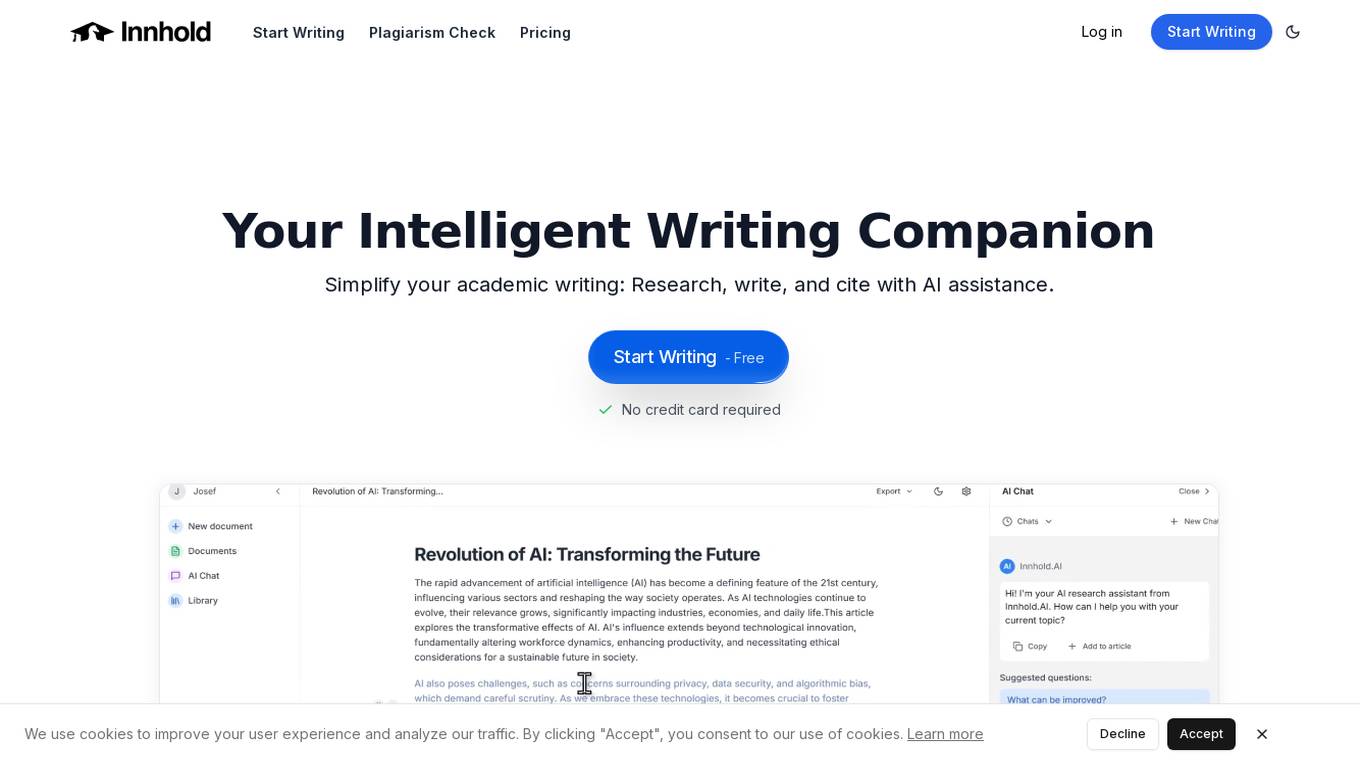
Innhold.ai
Innhold.ai is an AI-powered writing assistant designed to enhance your writing experience. It offers advanced features such as grammar checking, sentence restructuring, and vocabulary enhancement to help you create high-quality content. With its intuitive interface, users can easily improve their writing skills and productivity. Whether you are a student, professional writer, or content creator, Innhold.ai can assist you in crafting engaging and error-free text.
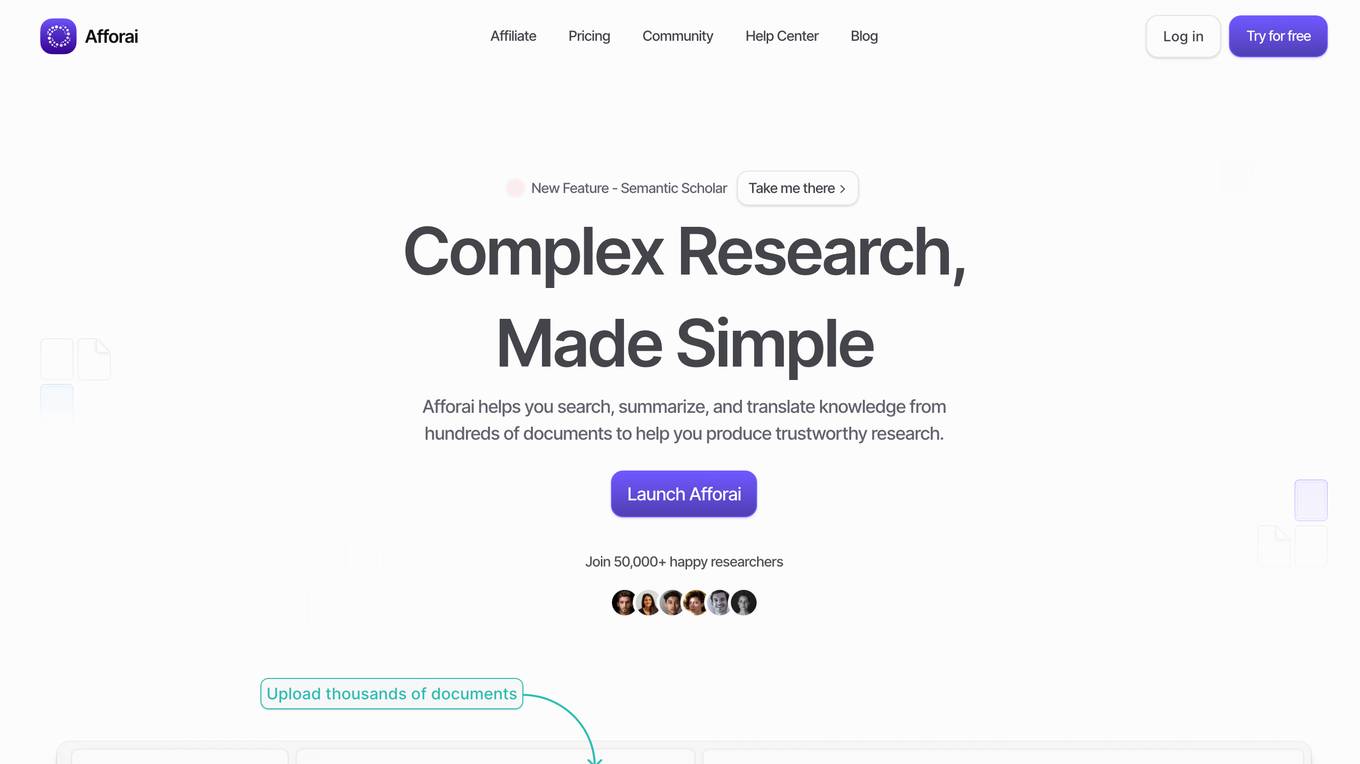
Afforai
Afforai is a powerful AI research assistant and chatbot that serves as an AI-powered reference manager for researchers. It helps manage, annotate, cite papers, and conduct literature reviews with AI reliably. With features like managing research papers, annotating and highlighting notes, managing citations and metadata, collaborating on notes, and supporting various document formats, Afforai streamlines academic workflows and enhances research productivity. Trusted by over 50,000 researchers worldwide, Afforai offers advanced AI capabilities, including GPT-4 and Claude 3.5 Sonnet, along with secure data handling and seamless integrations.
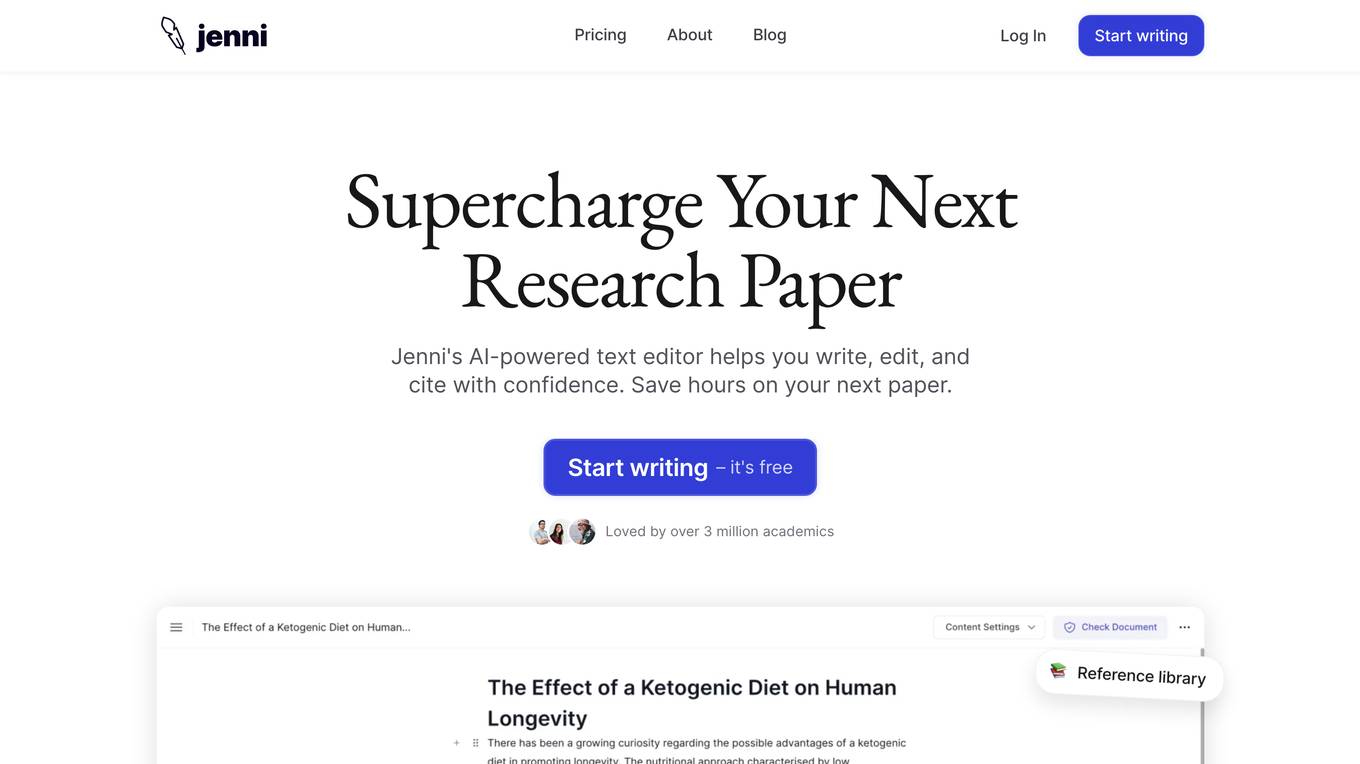
Jenni
Jenni is an AI-powered text editor that helps you write, edit, and cite with confidence. It offers a range of features to enhance your research and writing capabilities, including autocomplete, in-text citations, paraphrasing, and a reference library. Trusted by universities and businesses worldwide, Jenni has helped over 3 million academics write over 970 million words.
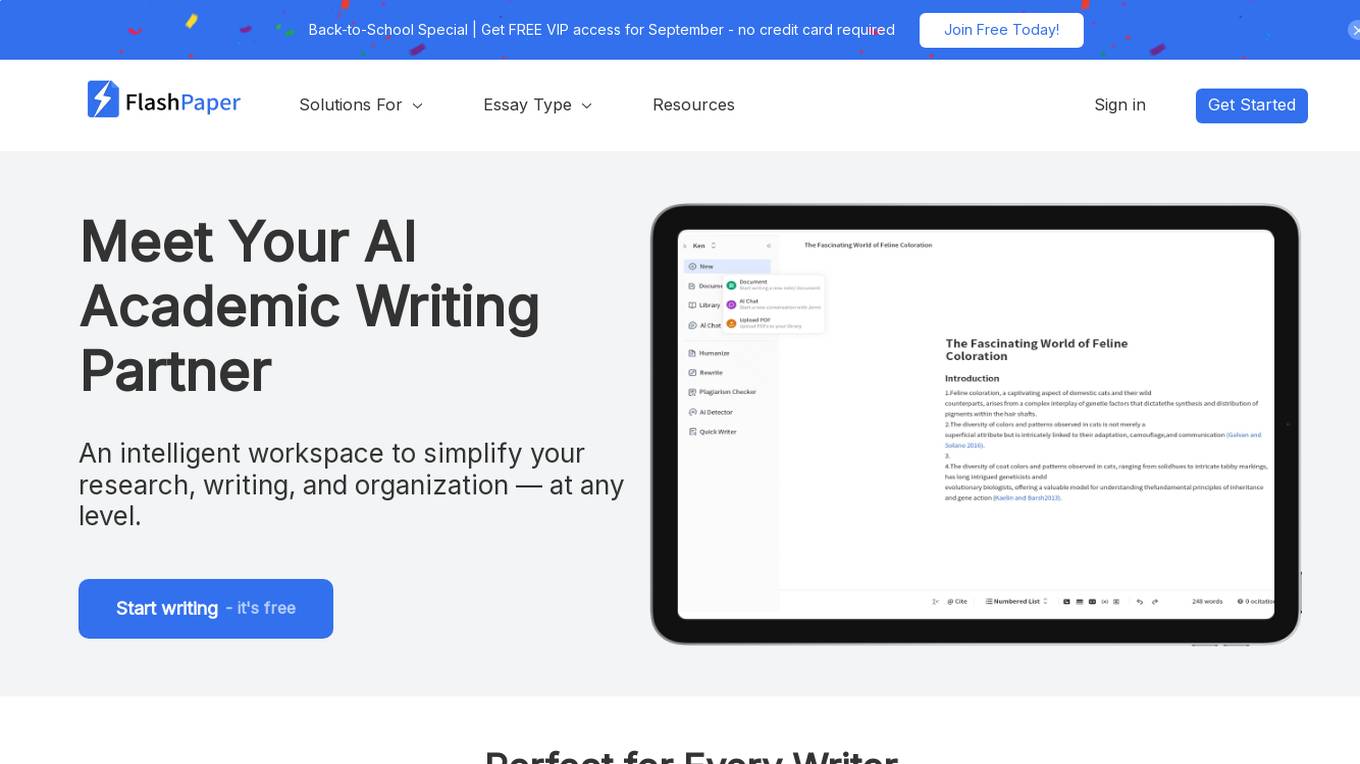
FlashPaper.ai
FlashPaper.ai is an AI-powered academic paper writing tool that helps students and researchers generate high-quality, plagiarism-free content effortlessly. The tool utilizes advanced natural language processing algorithms to create well-structured and coherent papers on various topics. With FlashPaper.ai, users can save time on research and writing, improve their writing skills, and enhance their academic performance. The platform offers a user-friendly interface and intuitive features to streamline the writing process, making it an indispensable tool for anyone looking to produce top-notch academic papers.
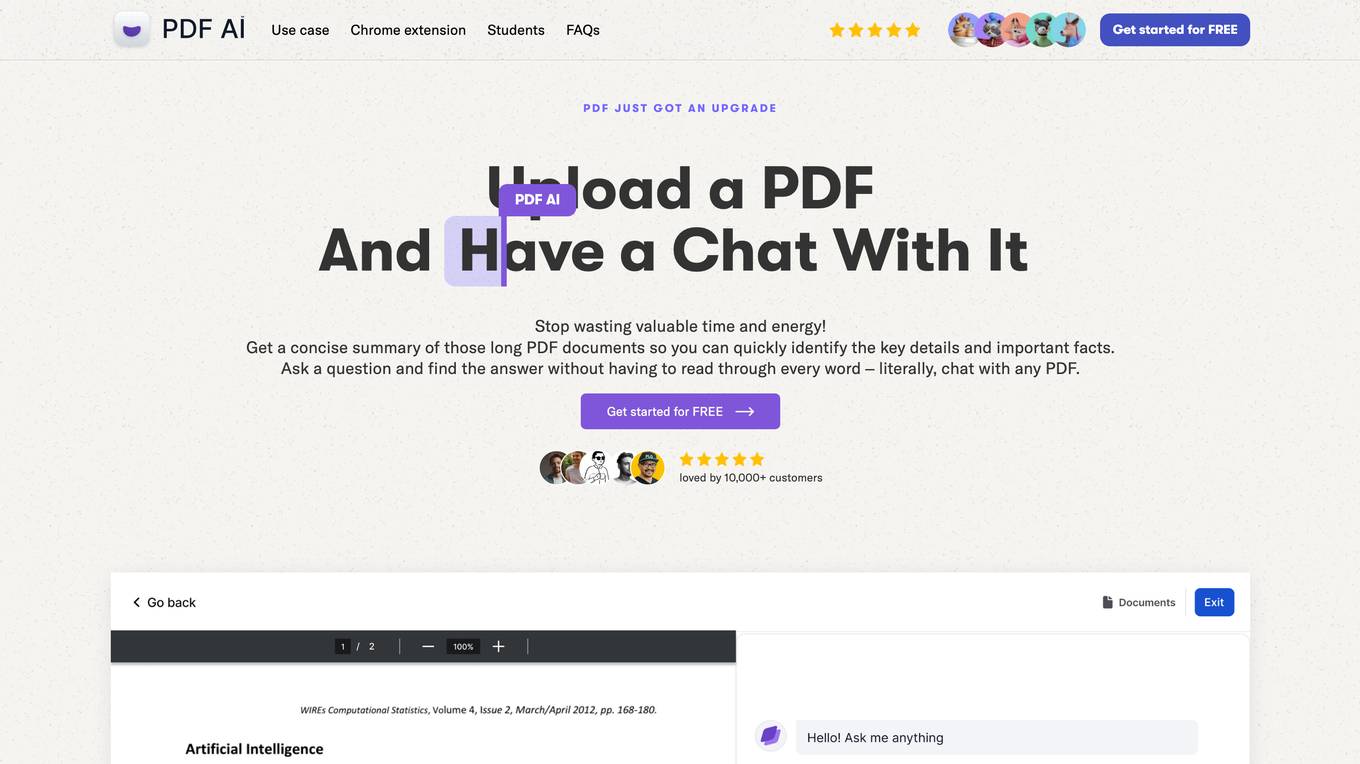
PDF AI
The website offers an AI-powered PDF reader that allows users to chat with any PDF document. Users can upload a PDF, ask questions, get answers, extract precise sections of text, summarize, annotate, highlight, classify, analyze, translate, and more. The AI tool helps in quickly identifying key details, finding answers without reading through every word, and citing sources. It is ideal for professionals in various fields like legal, finance, research, academia, healthcare, and public sector, as well as students. The tool aims to save time, increase productivity, and simplify document management and analysis.

BioloGPT
BioloGPT is an AI tool designed to answer biology-related questions with insights and graphs. It provides information on various topics such as maintaining a healthy gut microbiome, foods for a healthy immune system, effects of cannabis on the brain, risks of Covid-19 vaccines, and advancements in psoriasis treatment. The tool is updated daily and cites full papers to support its answers.
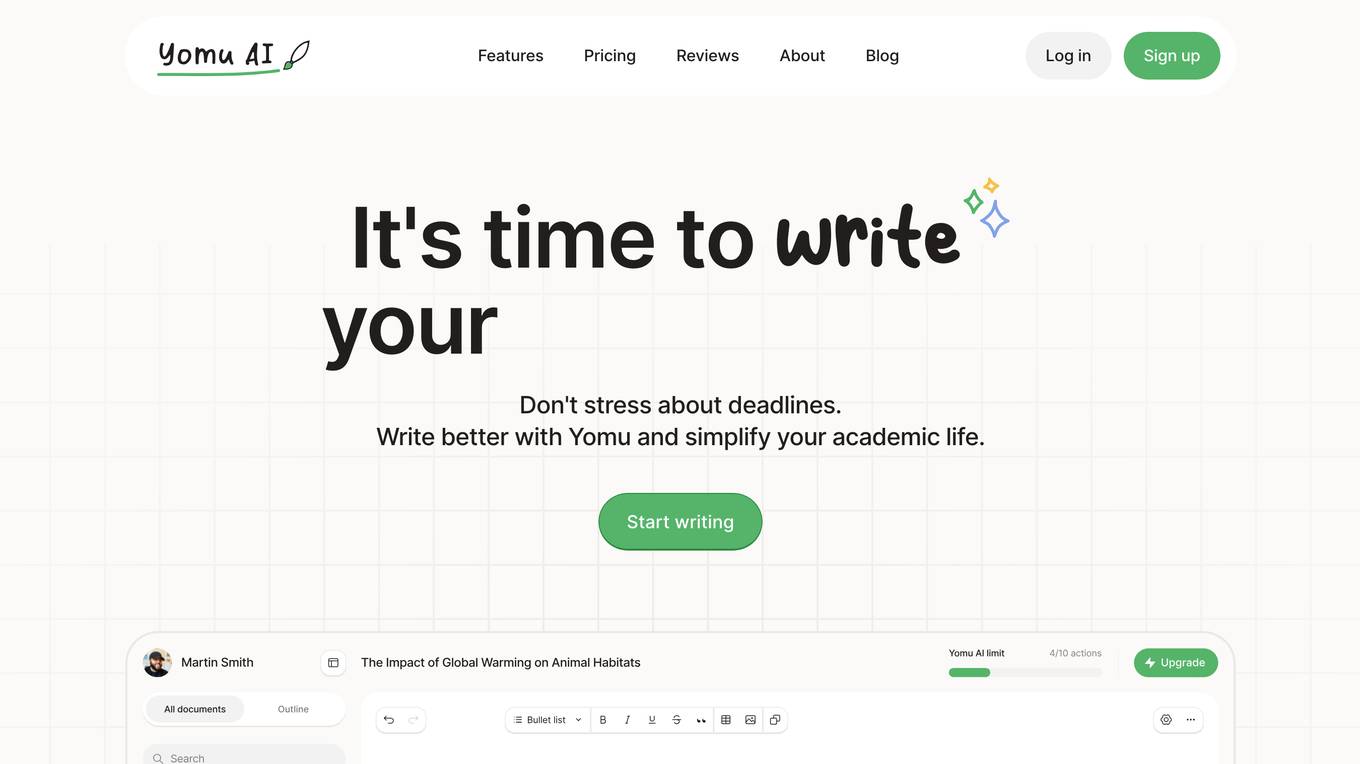
Yomu AI
Yomu is an AI-powered writing assistant designed to help users with academic writing tasks such as writing essays and papers. It offers features like an intelligent Document Assistant, AI autocomplete, paper editing tools, citation tool, plagiarism checker, and more. Yomu aims to simplify the academic writing process by providing AI-powered assistance to enhance writing quality and originality.
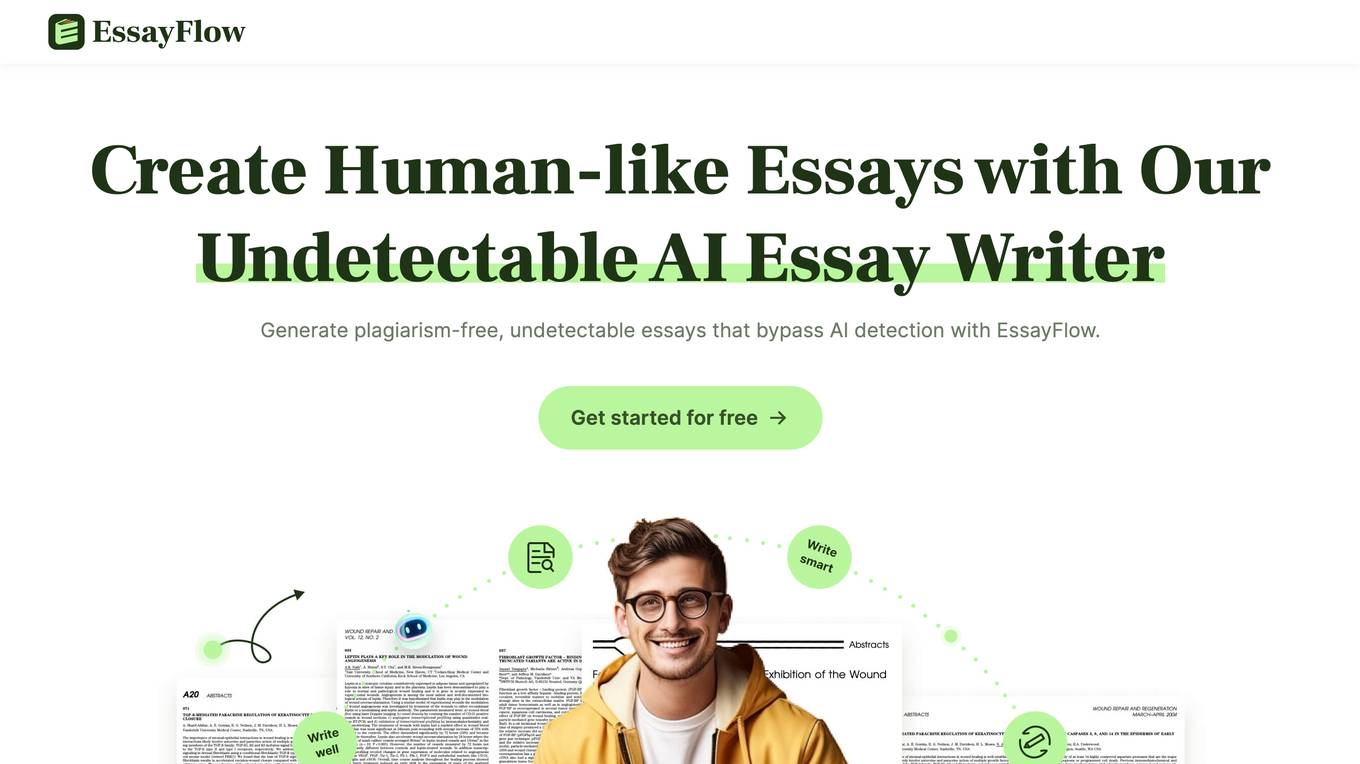
EssayFlow
EssayFlow is a free AI essay writer that helps students and academics write high-quality essays. It offers a range of features to make essay writing easier, including a plagiarism checker, grammar checker, and auto-completion tool. EssayFlow also provides access to a large database of academic resources, making it easy to find relevant and credible sources for your essays.

Yomu AI
Yomu AI is an AI-powered writing assistant designed to help users write better essays, papers, and academic writing. It offers features such as an intelligent Document Assistant, AI autocomplete, paper editing tools, citation tool, plagiarism checker, and more. Yomu aims to simplify academic writing, enhance productivity, and ensure originality and authenticity in the users' work.
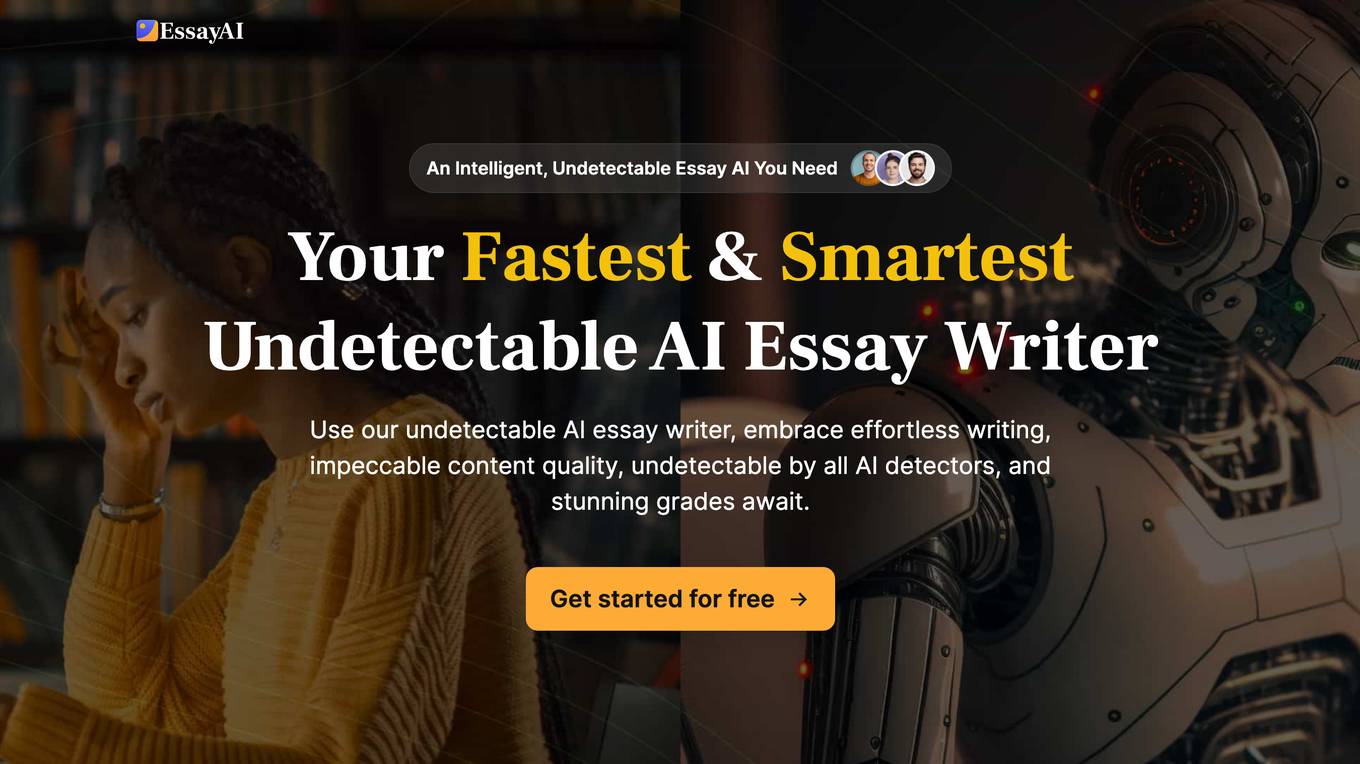
EssayAI
EssayAI is an AI-powered essay writing tool that helps users generate high-quality, plagiarism-free essays. It is designed to be undetectable by AI detectors and offers a range of features to assist writers, including smart outlining, extensive scholarly database integration, instant citation system, intelligent AI chatbot, and vast AI-driven toolsets. EssayAI can be used to write essays for various academic levels and subjects, as well as research papers, theses, case studies, and analytical reviews. It is also suitable for content writing freelancers and students who need help improving their writing skills.
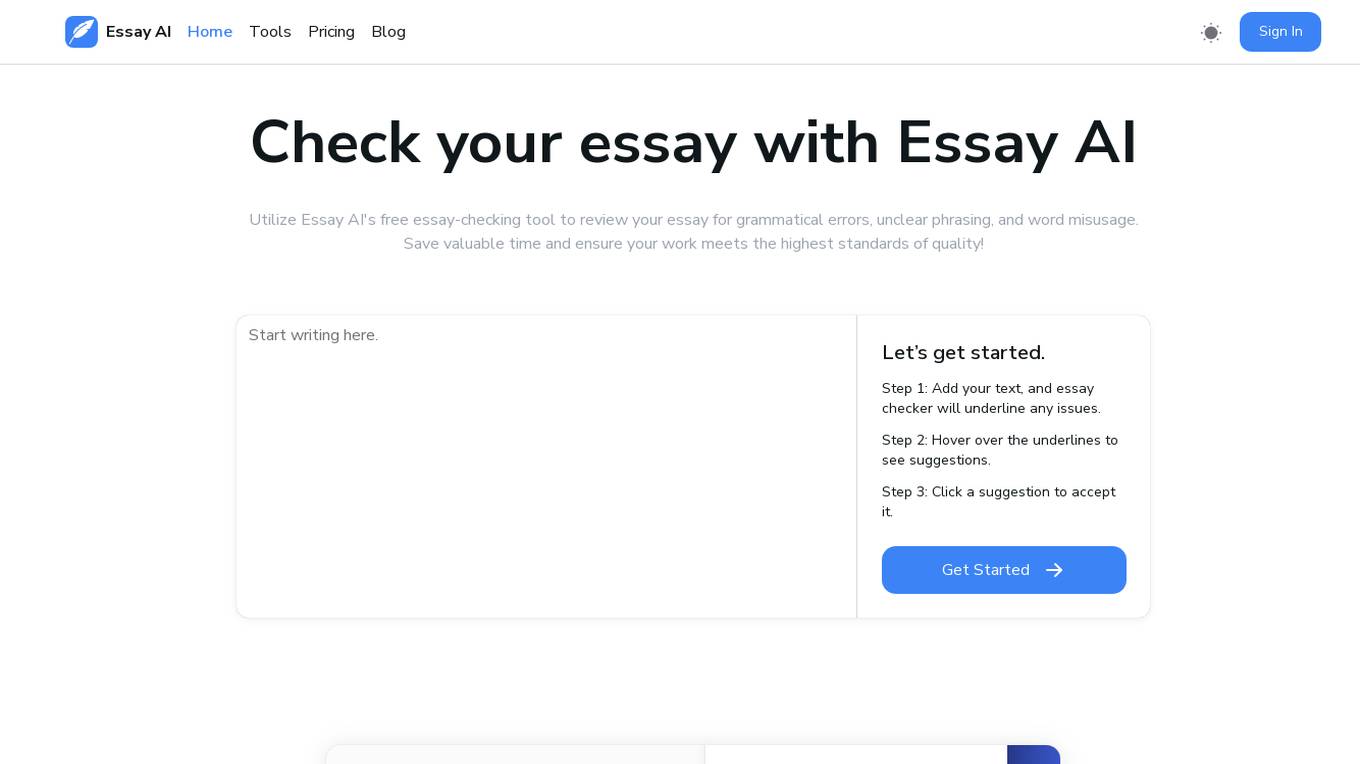
Essay AI
Essay AI is a free essay-checking tool designed to help users review their essays for grammatical errors, unclear phrasing, and word misusage. It offers features such as AI autocomplete, conversation engagement, source citation, paraphrasing, rewriting, and outline building. The tool aims to save users valuable time and ensure their work meets high-quality standards. Trusted by top universities, Essay AI streamlines the essay writing process and provides instant feedback to improve writing skills.
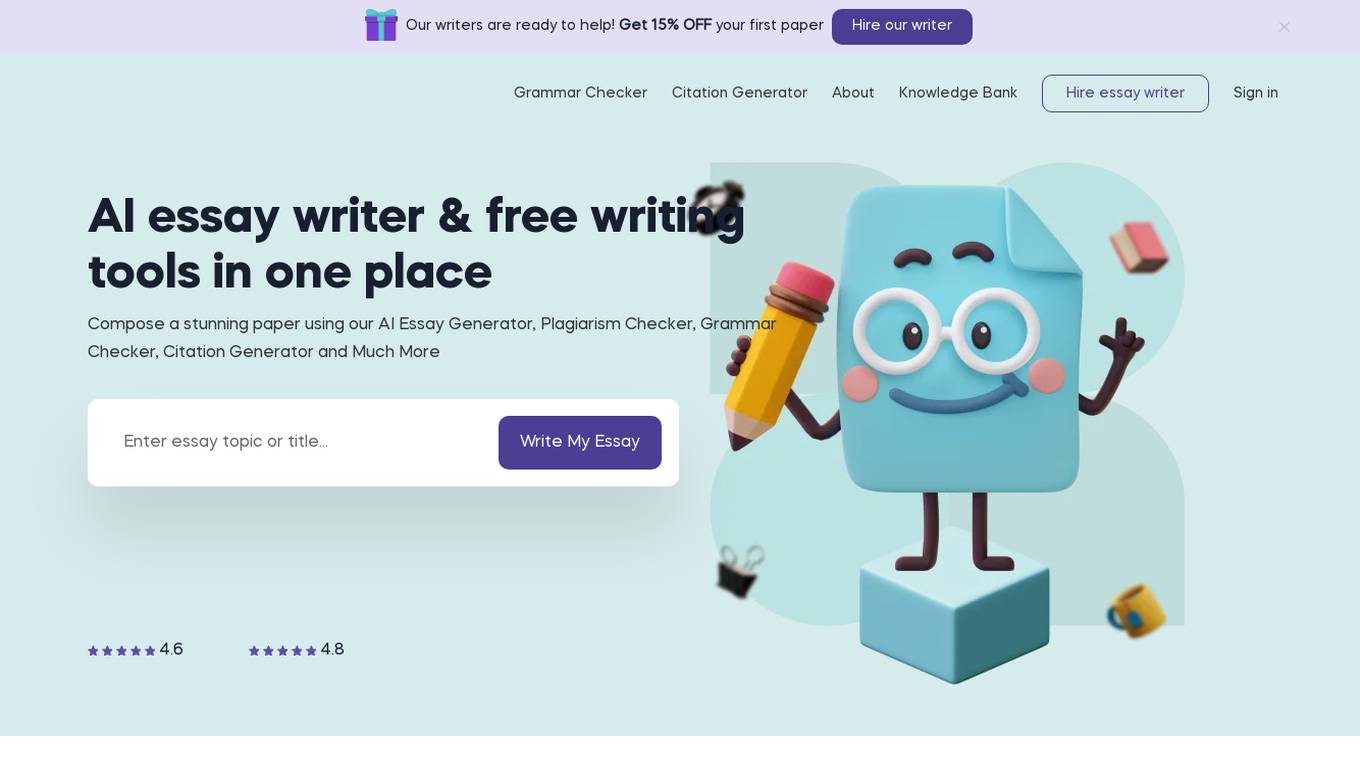
PaperTyper
PaperTyper is an online writing platform that offers a range of free tools for students to use in their academic writing. These tools include an AI essay writer, plagiarism checker, grammar checker, and citation generator. PaperTyper also offers a paid service where students can hire professional essay writers to write their papers for them.

WriterBuddy
WriterBuddy is an advanced AI writing assistant that streamlines academic workflow by helping users research, write, edit, and cite faster and smarter. It offers features such as paraphrasing, text summarization, plagiarism checking, grammar checking, and citation generation. WriterBuddy aims to enhance writing productivity, accuracy, and originality, catering to students, researchers, and professionals across various industries.
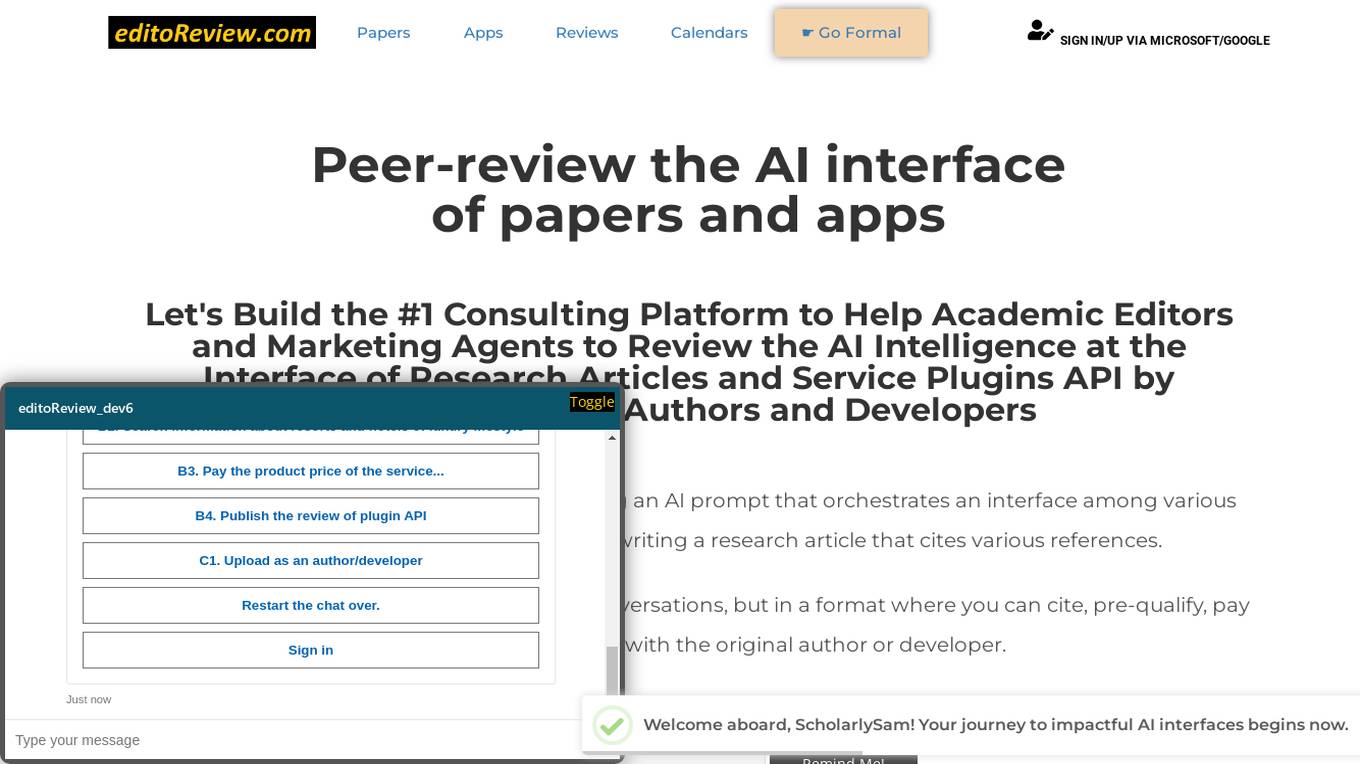
editoReview
editoReview is a consulting platform and marketplace that helps academic editors and marketing agents to review the AI intelligence at the interface of research articles and service plugins API by consulting with authors and developers. It allows users to start a new review using an AI chat transcript or from a template document, cite the reference paper or app to schedule a consultation meeting with the author or developer, and pay the optional consultation and publish the review transcripts with shareable links.
5 - Open Source AI Tools
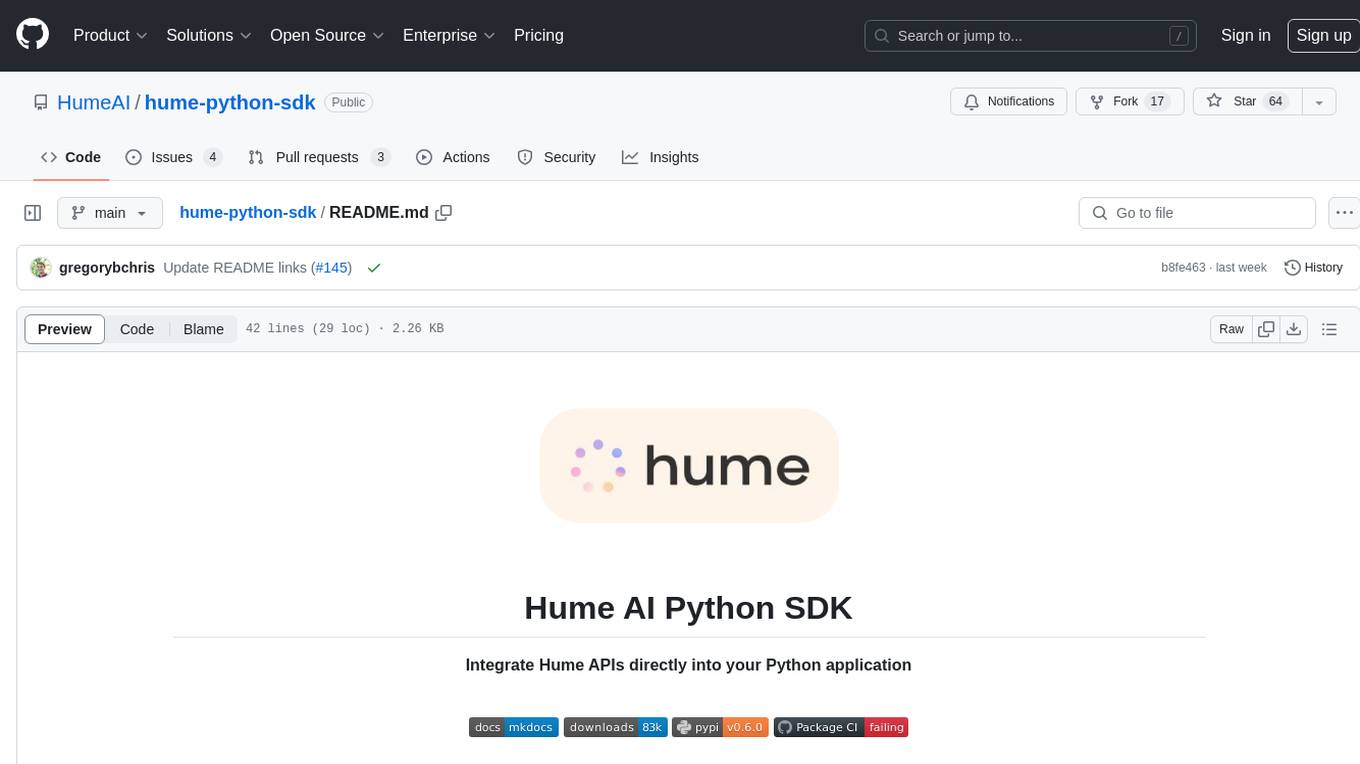
hume-python-sdk
The Hume AI Python SDK allows users to integrate Hume APIs directly into their Python applications. Users can access complete documentation, quickstart guides, and example notebooks to get started. The SDK is designed to provide support for Hume's expressive communication platform built on scientific research. Users are encouraged to create an account at beta.hume.ai and stay updated on changes through Discord. The SDK may undergo breaking changes to improve tooling and ensure reliable releases in the future.
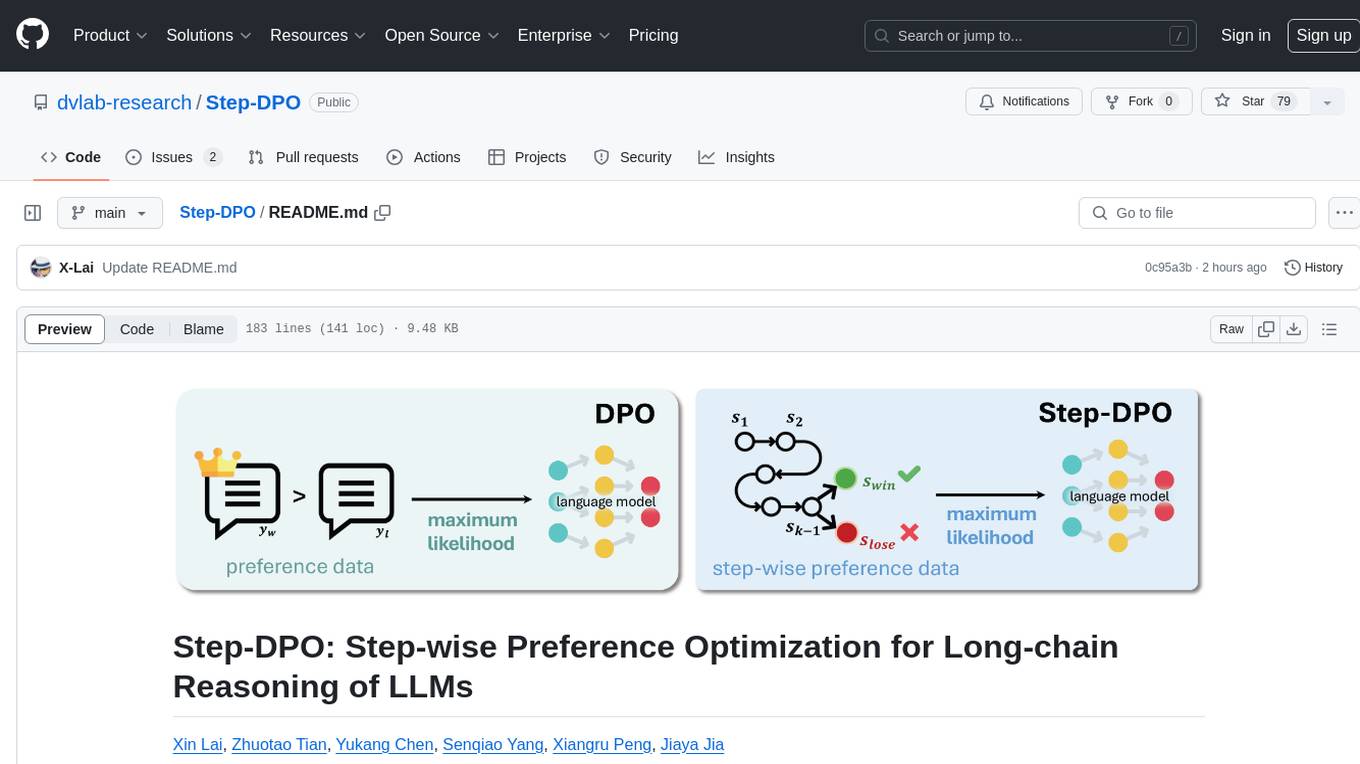
Step-DPO
Step-DPO is a method for enhancing long-chain reasoning ability of LLMs with a data construction pipeline creating a high-quality dataset. It significantly improves performance on math and GSM8K tasks with minimal data and training steps. The tool fine-tunes pre-trained models like Qwen2-7B-Instruct with Step-DPO, achieving superior results compared to other models. It provides scripts for training, evaluation, and deployment, along with examples and acknowledgements.
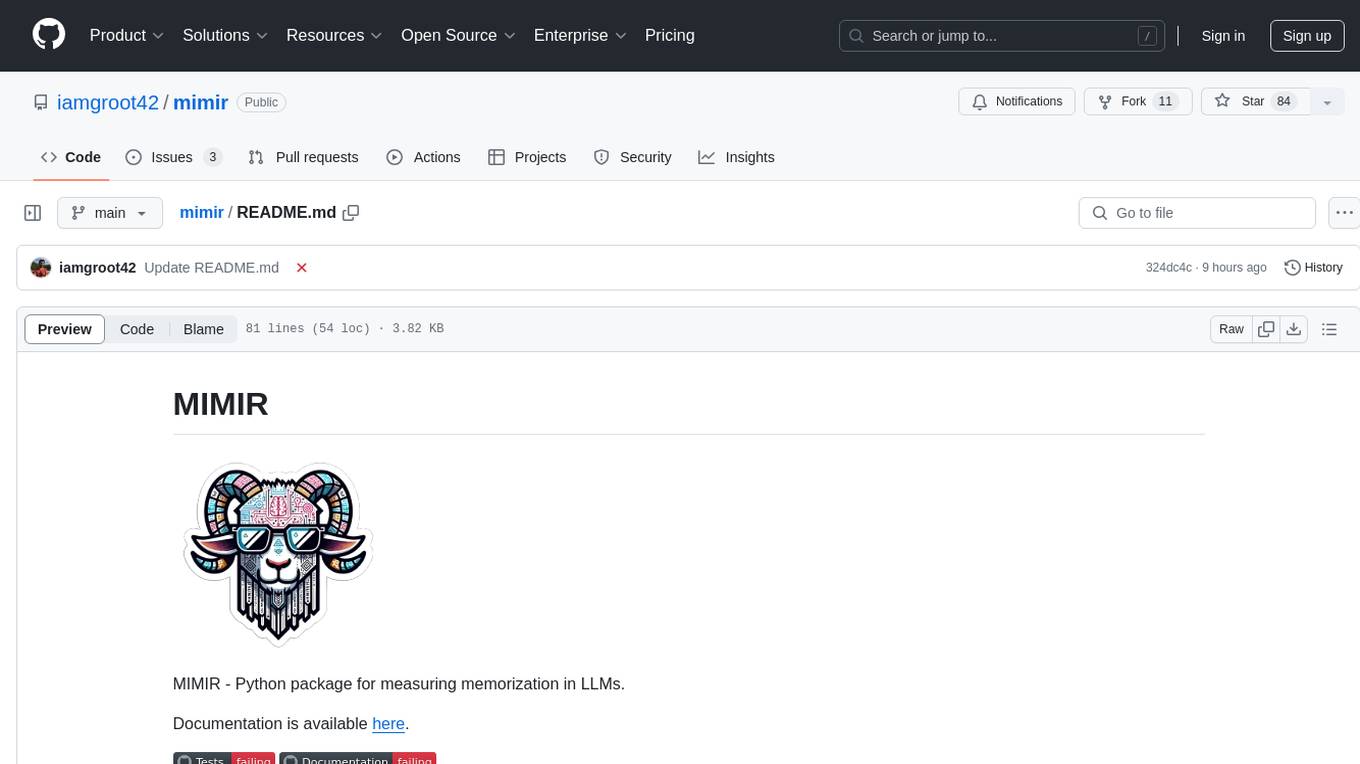
mimir
MIMIR is a Python package designed for measuring memorization in Large Language Models (LLMs). It provides functionalities for conducting experiments related to membership inference attacks on LLMs. The package includes implementations of various attacks such as Likelihood, Reference-based, Zlib Entropy, Neighborhood, Min-K% Prob, Min-K%++, Gradient Norm, and allows users to extend it by adding their own datasets and attacks.
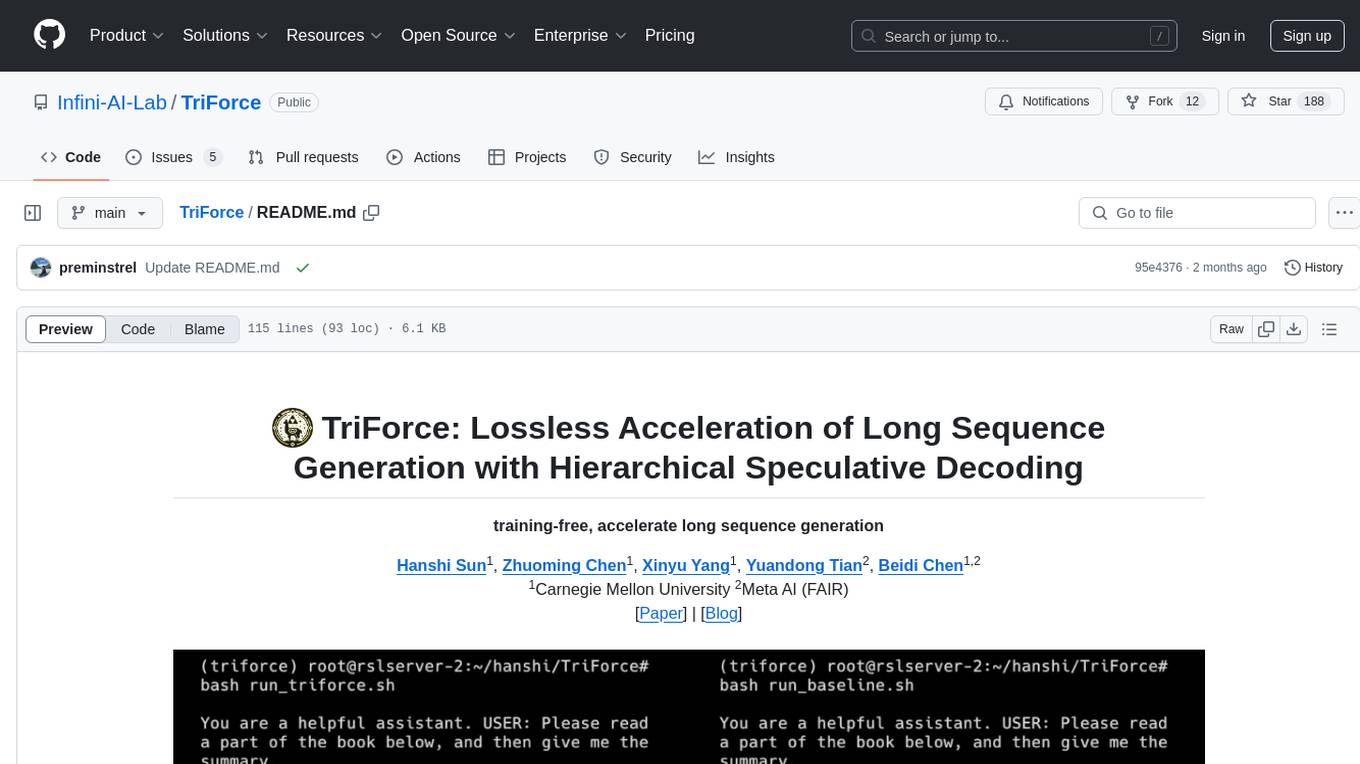
TriForce
TriForce is a training-free tool designed to accelerate long sequence generation. It supports long-context Llama models and offers both on-chip and offloading capabilities. Users can achieve a 2.2x speedup on a single A100 GPU. TriForce also provides options for offloading with tensor parallelism or without it, catering to different hardware configurations. The tool includes a baseline for comparison and is optimized for performance on RTX 4090 GPUs. Users can cite the associated paper if they find TriForce useful for their projects.
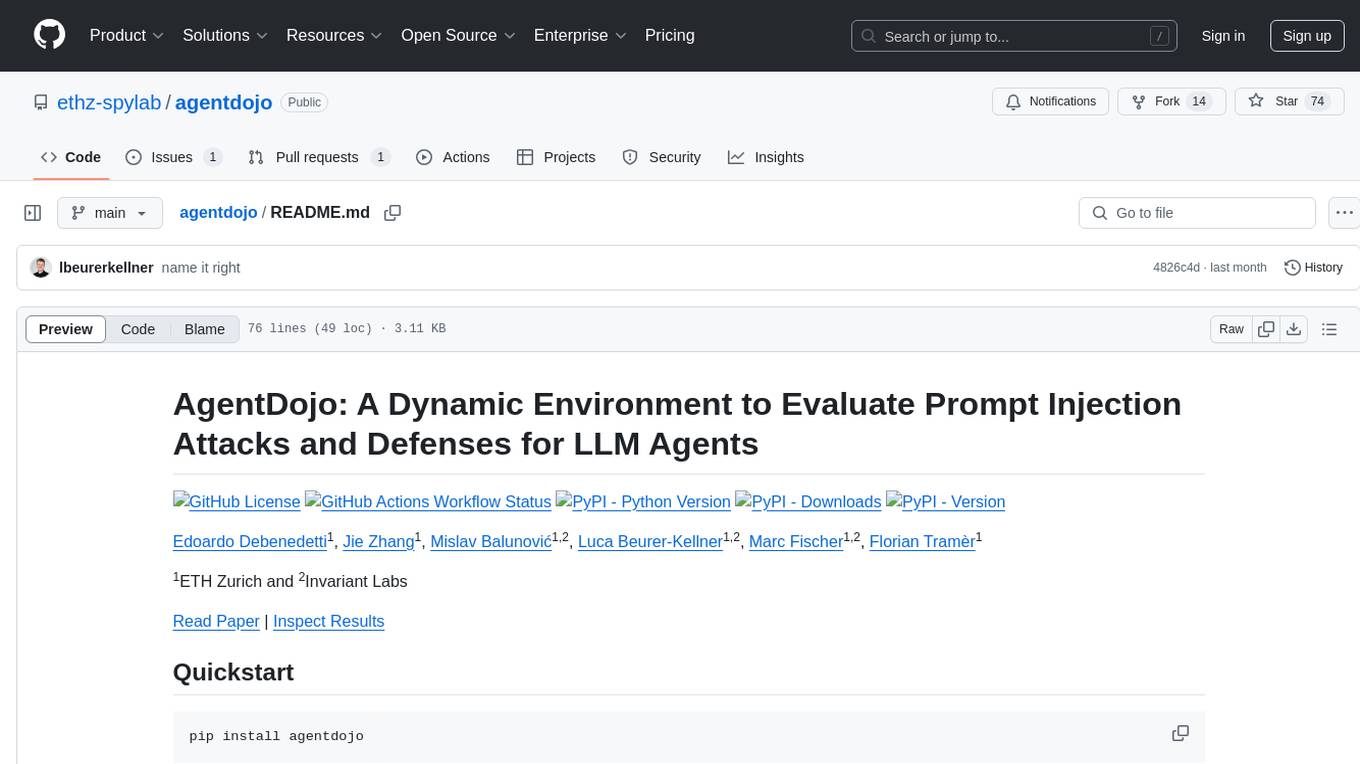
agentdojo
AgentDojo is a dynamic environment designed to evaluate prompt injection attacks and defenses for large language models (LLM) agents. It provides a benchmark script to run different suites and tasks with specified LLM models, defenses, and attacks. The tool is under active development, and users can inspect the results through dedicated documentation pages and the Invariant Benchmark Registry.
20 - OpenAI Gpts

AMEDマニュアル
Expert in scientific research grants, answers in Japanese with detailed references and citations.
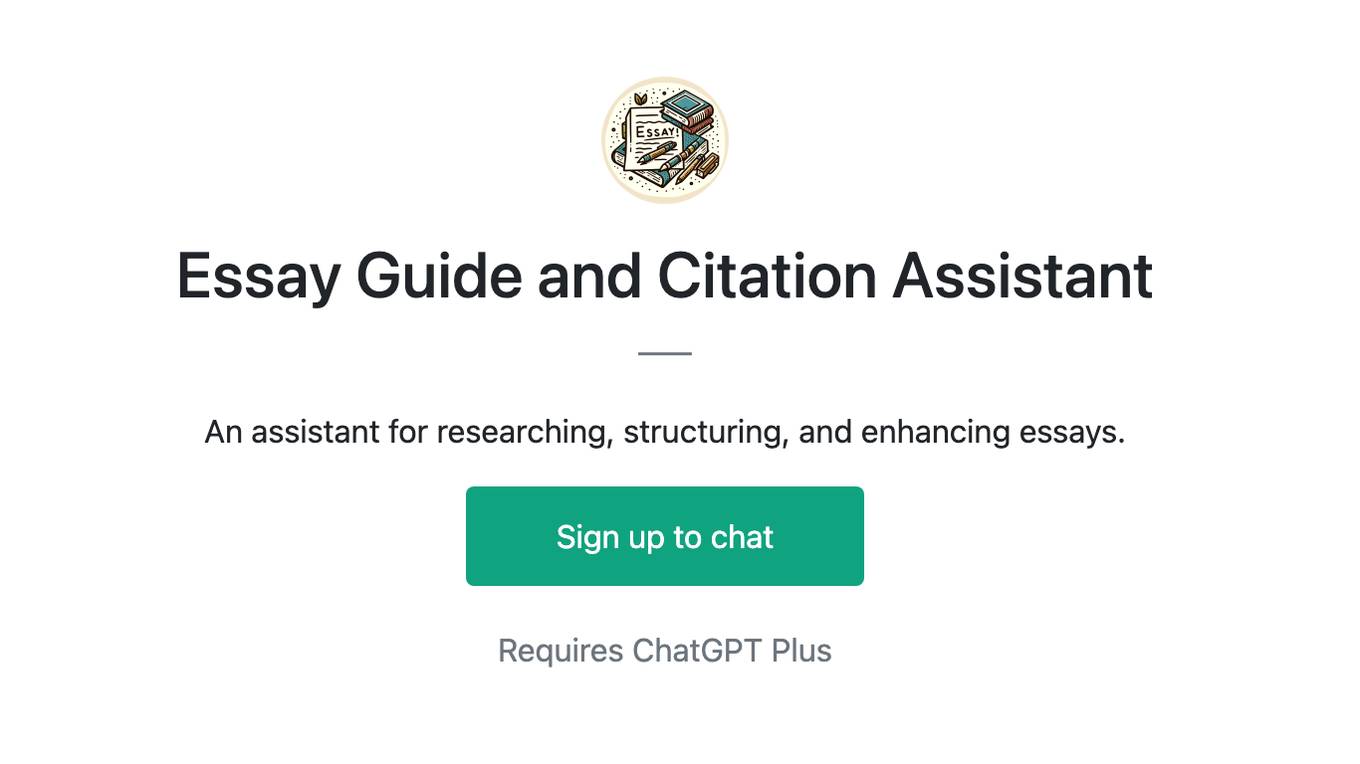
Essay Guide and Citation Assistant
An assistant for researching, structuring, and enhancing essays.
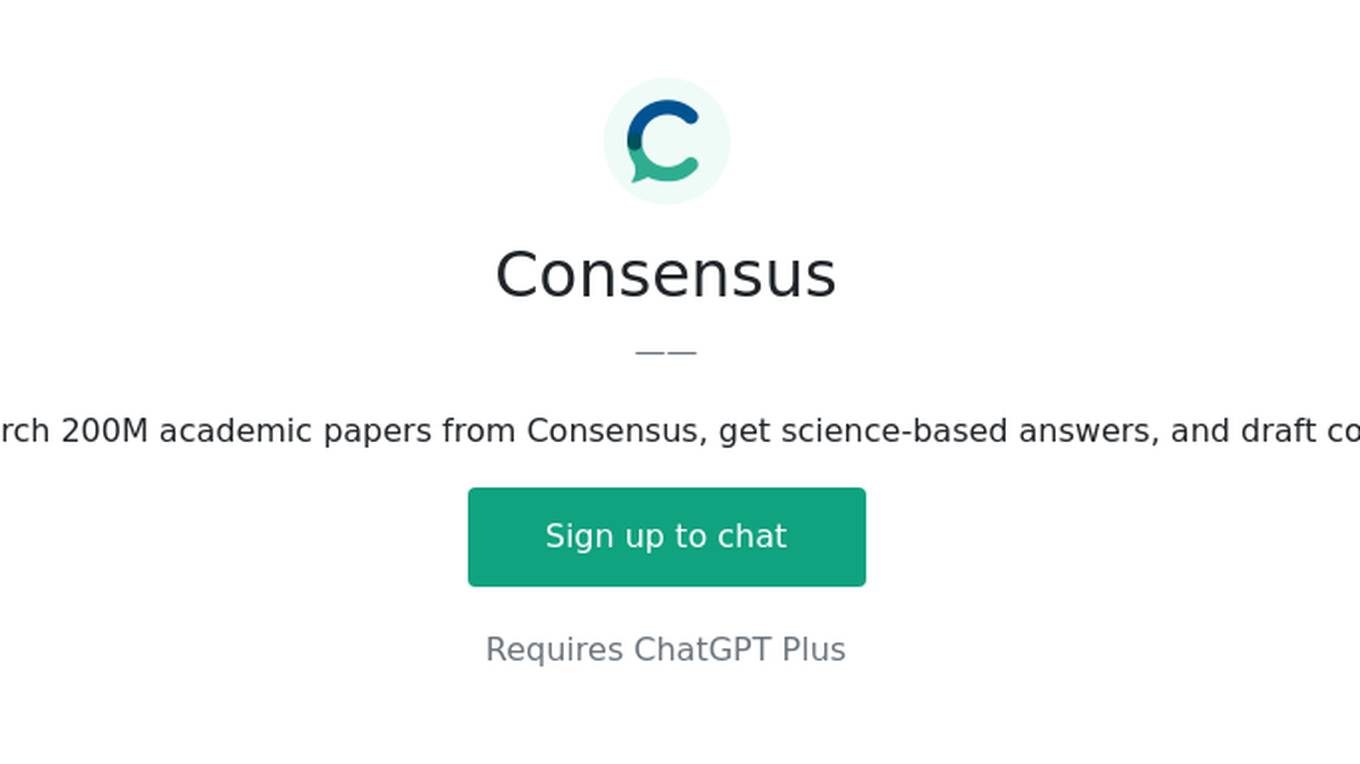
Consensus
Your AI Research Assistant. Search 200M academic papers from Consensus, get science-based answers, and draft content with accurate citations.
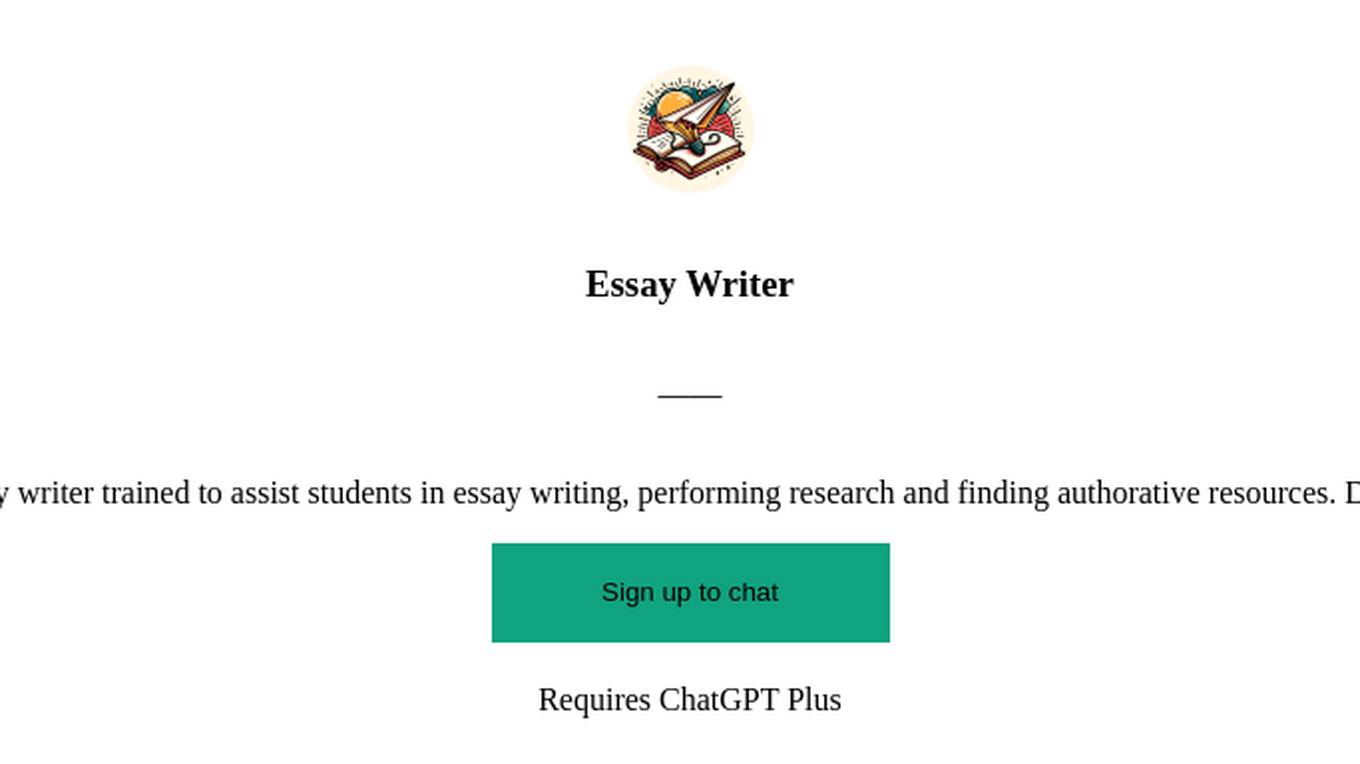
Essay Writer
Professional academic essay writer trained to assist students in essay writing, performing research and finding authorative resources. Developed by PapersOwl.com
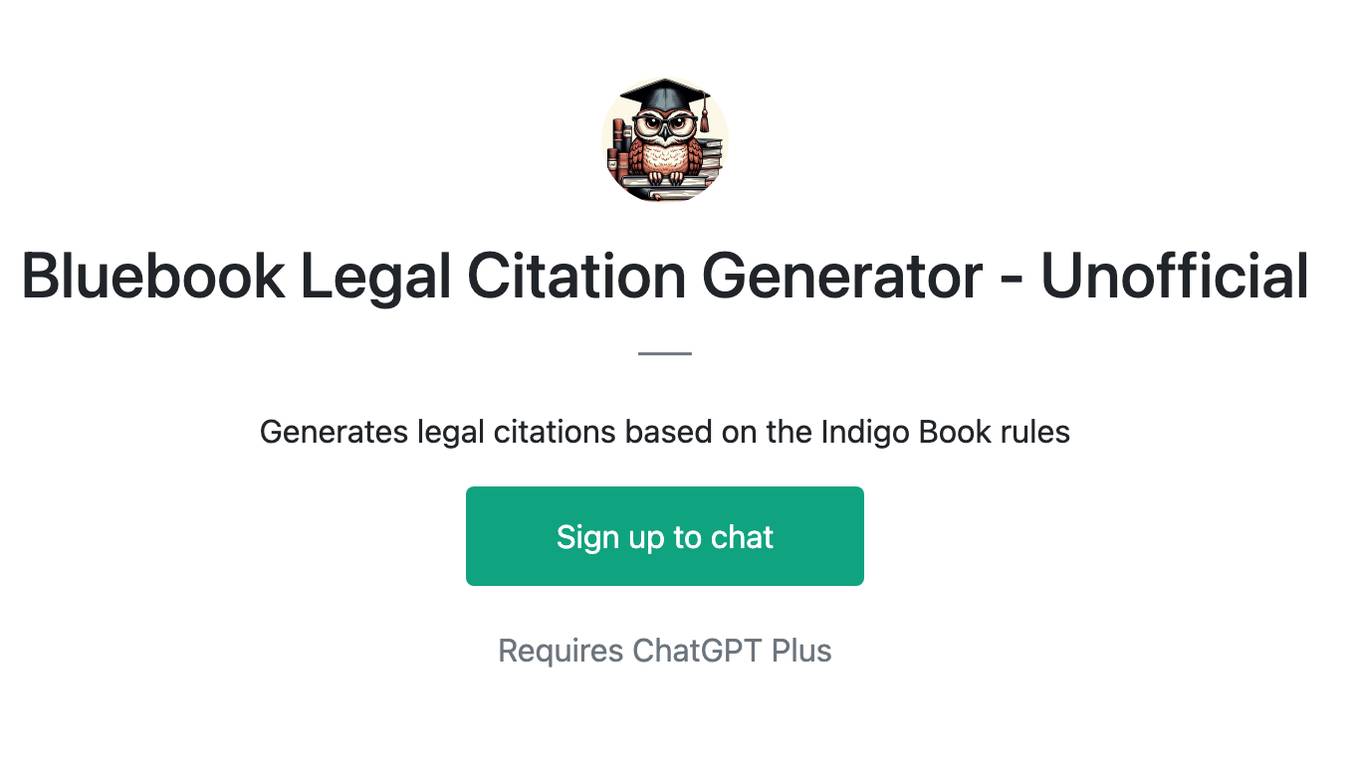
Bluebook Legal Citation Generator - Unofficial
Generates legal citations based on the Indigo Book rules
